#1886 – Birth of author
Explore tagged Tumblr posts
Text
#OTD in 1866 – Birth of nationalist poet and writer, Alice Milligan, in Omagh, Co Tyrone.
Alice Milligan was born and brought up as a Methodist in Gortmore, near Omagh, Co Tyrone. Alice was one of eleven children and from 1877 to 1887 attended Methodist College, Belfast, after which she completed a teacher-training course. Together with her father she wrote a political travelogue of the north of Ireland in 1888, Glimpses of Erin. She wrote her first novel, A Royal Democrat, in…

View On WordPress
#1798 United Irishmen Rebellion#1886 – Birth of author#Alice Milligan#Co. Tyrone#Ethna Carbery#Gortmore#James Connolly#Jenny Armour#Methodist#Nationalist#Omagh#Pentonville Prison#Poet#Roger Casement#The Shan Van Vocht#Tomás MacDonagh#W.B. Yeats#Writer
4 notes
·
View notes
Text
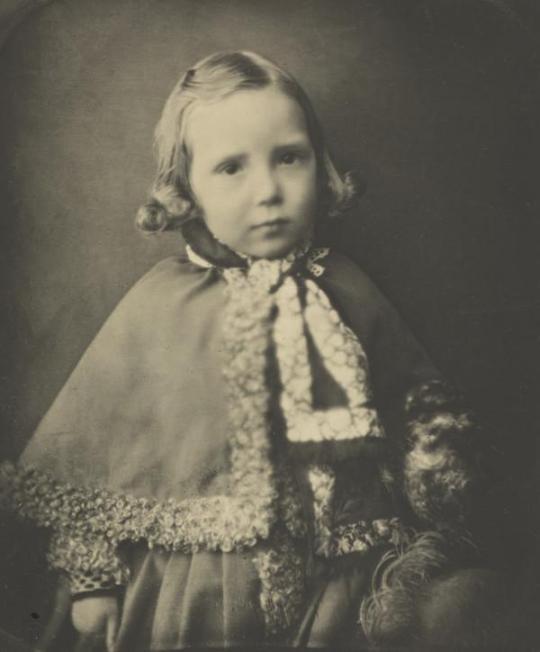
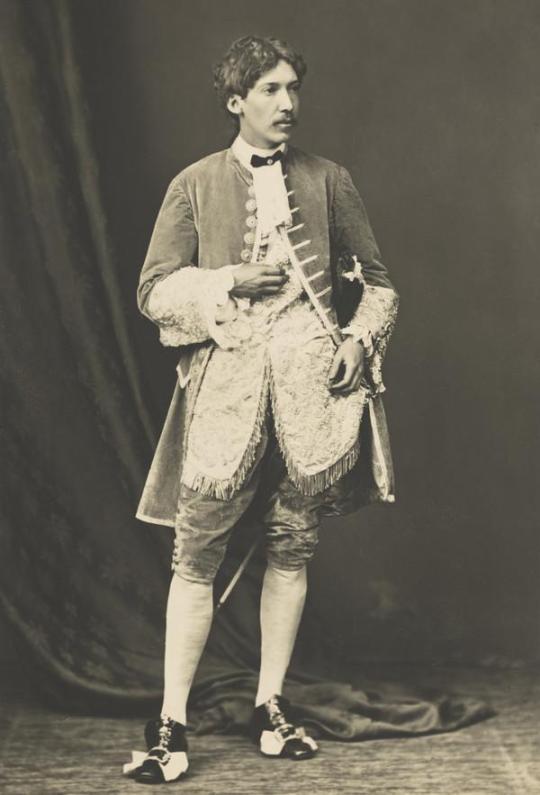
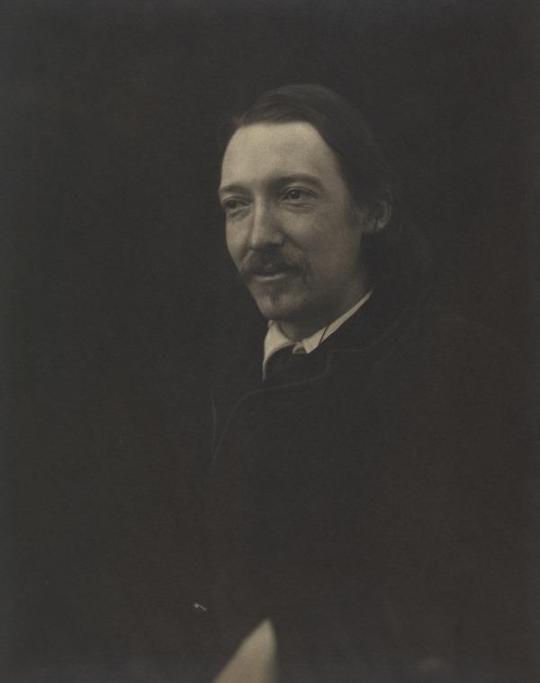
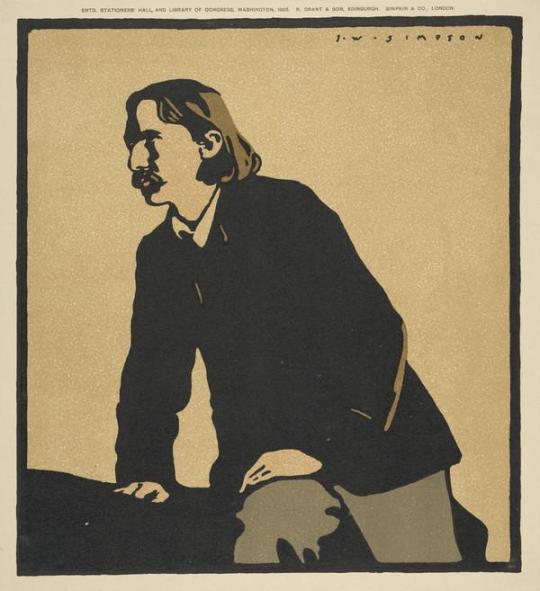
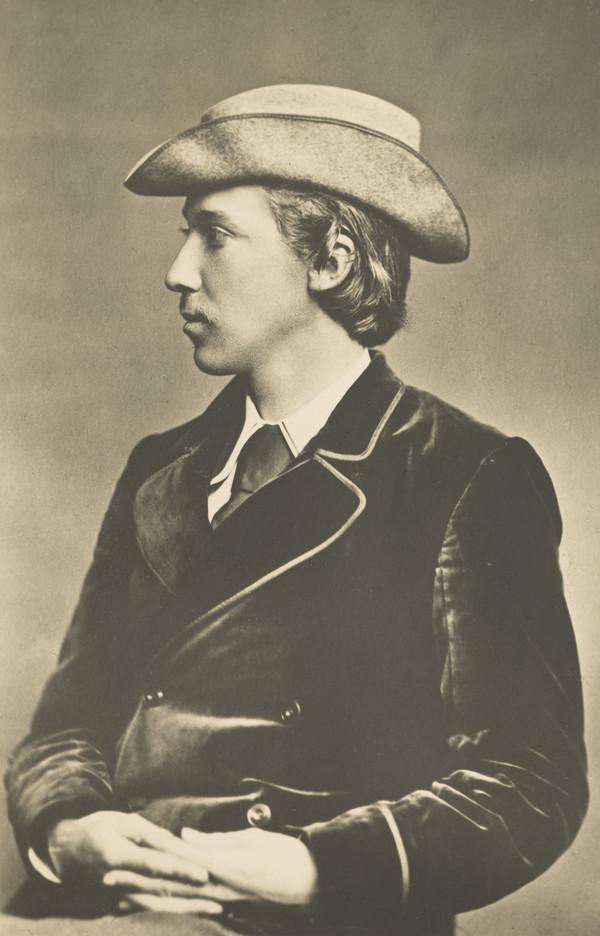
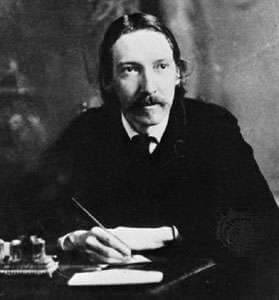
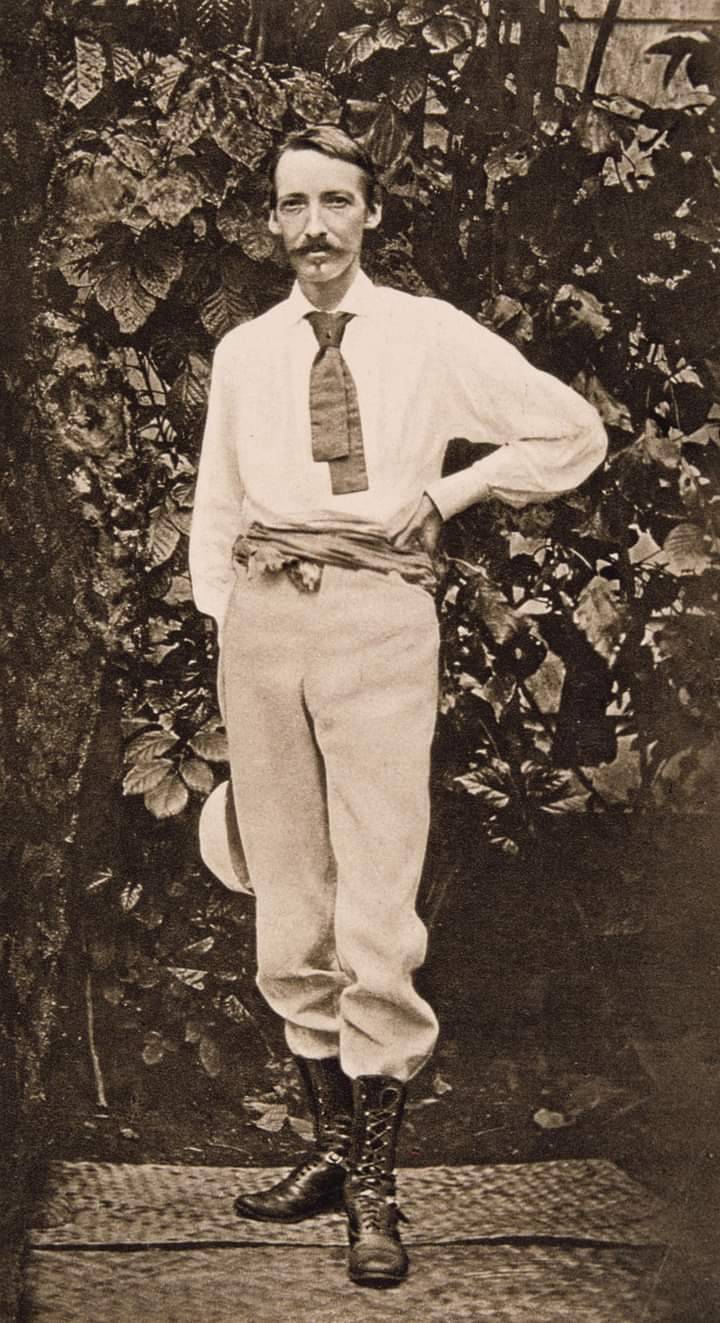
November 13th 1850 saw the birth of Robert Louis Stevenson in Edinburgh.
As the author of such classics as Treasure Island, Kidnapped and The Strange Case of Dr Jekyll and Mr Hyde, Stevenson is known the world over, instead of reeling off the usual facts about the life of the man I thought I would dig up some facts that are not so well known.
When Stevenson first wrote Treasure Island, he submitted his stories under nom-de-plume of Captain George North to a children's periodical called Young Folks.
He may have invented the sleeping bag; according to the Stevenson House website: "R.L.S. has a good claim to be the inventor of the Sleeping Bag, taking a large fleece-lined sack with him to sleep in on the journey through France described in his book Travels with a Donkey in the Cevennes." For the record, his six-foot square sleeping sack was made of "green waterproof cart-cloth without and blue sheep's fur within".
Stevenson collected corselets (a sort of protective girdle) and was particularly proud of his ones from the Gilbert Island, which were designed to offer effective protection against sharks’ teeth weapons, throwing spears and European knives and bayonets. They were made of coconut fibre and decorated with human hair. They were given to him by King Tembinoka, the Tyrant of the Island of Apemama.
He had wooden teeth, when he was living in America in 1878 and pursuing the unhappily married Fanny Vandegrift Osbourne - a woman 11 years his senior - Stevenson lived in San Francisco's Chinatown. He was lonely and in poor health and while in Tubbs Hotel he had trouble with a bleeding mouth and rotten teeth. A local dentist removed all his teeth and fitted him with false wooden replacements. He married Fanny shortly afterwards.
As well as a writer, he was also a keen musician and composer, Stevenson played the piano and flageolet and wrote more than 100 original musical compositions and arrangements, including solos, duets, trios and quartet. His works include ten songs written to his own poetry.
He burnt the first draft of Jekyll & Hyde, the story was promoted by a dream he had while in Bournemouth of a "fine bogey tale", was written around the same time as Kidnapped and was partly based on Deacon Brodie, the 18th-century Edinburgh cabinetmaker. His wife Fanny complained that he had not made the allegory strong enough and he tossed the 30,000 word manuscript into the fire. Then in "a white heat", using a quill pen and ink pot, he stayed in bed for three days and wrote a new version. He would later claim that it was the worst thing he ever wrote but The Strange Case of Dr. Jekyll and Mr. Hyde sold 40,000 copies in its first six months on sale in 1886.
Long John Silver stayed at the Royal Infirmary. Treasure Island character Long John Silver was based on poet WE Henley, who RLS frequently visited at the Royal Infirmary. Henley suffered from tuberculosis of the bone and acquired a wooden leg after having his left leg amputated in 1868.
He left a number of books unfinished before his untimely death in Samoa on December 3rd 1894. Reports at the time said he had died of "apoplexy" due to the heat. It was also described as a stroke and a cerebral haemorrhage brought on by straining to opening a jar of mayonnaise. Or a bottle of wine. No one is sure. He was only 44.
Stevenson was buried in a grand ceremony on Mount Vaea, Upolu and his tomb is inscribed with the words: “Home is the sailor, home from the sea,/And the hunter home from the hill.” On the day he died he had been dictating words for his unfinished novel The Chief Justice's Clerk. He also left behind an uncompleted novel called St Ives (the story of a French prisoner who made his escape from Edinburgh Castle), The Young Chevalier, Heathercat and Weir of Hermiston.
Stevenson wrote his own inscription on his grave, the full verse reads...
Under the wide and starry sky,
Dig the grave and let me lie.
Glad did I live and gladly die
,And I laid me down with a will.
This be the verse you grave for me:
Here he lies where he longed to be;
Home is the sailor, home from sea,
And the hunter home from the hill.
15 notes
·
View notes
Text
irl bsd authors
i haven't found a list of irl bsd authors listed from oldest to most recent so i decided to do that. multiple lists for date of birth, death, and publication of the work their ability is based on (if applicable) + fun stuff at the end
birth dates (oldest to most recent)
alexander pushkin - 6 Jun 1799
nathaniel hawthorne - 4 Jul 1804
edgar allan poe - 19 Jan 1809
nikolai gogol - 1 Apr 1809
ivan gonchorav - 18 Jun 1812
herman melville - 1 Aug 1819
fyodor dostoevsky - 11 Nov 1821
jules verne - 8 Feb 1828
saigiku jōno - 24 Sep 1832
louisa may alcott - 29 Nov 1832
yukichi fukuzawa - 10 Jan 1835
mark twain - 30 Nov 1835
ōchi fukuchi - 13 May 1841
paul verlaine - 30 Mar 1844
bram stoker - 8 Nov 1847
tetchō suehiro - 15 Mar 1849
arthur rimbaud - 20 Oct 1854
ryūrō hirotsu - 15 Jul 1861
ōgai mori - 17 Feb 1862
h. g. wells - 21 Sep 1866
natsume sōseki - 9 Feb 1867
kōyō ozaki - 10 Jan 1868
andré gide - 22 Nov 1869
doppo kunikida - 30 Aug 1871
katai tayama - 22 Jan 1872
ichiyō higuchi - 2 May 1872
kyōka izumi - 4 Nov 1873
lucy maud montgomery - 30 Nov 1874
akiko yosano - 7 Dec 1878
santōka taneda - 3 Dec 1882
teruko ōkura - 12 Apr 1886
jun'ichirō tanizaki - 24 Jul 1886
yumeno kyūsaku - 4 Jan 1889
h. p. lovecraft - 20 Aug 1890
agatha christie - 15 Sep 1890
ryūnosuke akutagawa - 1 Mar 1892
ranpo edogawa - 21 Oct 1894
kenji miyazawa - 27 Aug 1896
f. scott fitzgerald - 24 Sep 1896
margaret mitchell - 8 Nov 1900
motojirō kajii - 17 Feb 1901
mushitarō oguri - 14 Mar 1901
john steinbeck - 27 Feb 1902
aya kōda - 1 Sep 1904
ango sakaguchi - 20 Oct 1906
chūya nakahara - 29 Apr 1907
atsushi nakajima - 5 May 1909
osamu dazai - 19 Jun 1909
sakunosuke oda - 26 Oct 1913
michizō tachihara - 30 Jul 1914
tatsuhiko shibusawa - 8 May 1928
(ace) alan bennett - 9 May 1934
yukito ayatsuji - 23 Dec 1960
mizuki tsujimura - 29 Feb 1980
death dates (oldest to most recent)
alexander pushkin - 10 Feb 1837
edgar allan poe - 7 Oct 1849
nikolai gogol - 4 Mar 1852
nathaniel hawthorne - 19 May 1864
fyodor dostoevsky - 9 Feb 1881
louisa may alcott - 6 Mar 1888
ivan goncharov - 27 Sep 1891
herman melville - 28 Sep 1891
arthur rimbaud - 10 Nov 1891
paul verlaine - 8 Jan 1896
tetchō suehiro - 5 Feb 1896
ichiyō higuchi - 23 Nov 1896
yukichi fukuzawa - 3 Feb 1901
saigiku jōno - 24 Jan 1904
jules verne - 24 Mar 1905
kōyō ozaki - 30 Oct 1903
ōchi fukuchi - 4 Jan 1906
doppo kunikida - 23 Jun 1908
mark twain - 21 Apr 1910
bram stoker - 20 Apr 1912
natsume sōseki - 9 Dec 1916
ōgai mori - 8 Jul 1922
ryūrō hirotsu - 25 Oct 1928
ryūnosuke akutagawa - 24 Jul 1927
katai tayama - 13 May 1930
motojirō kajii - 24 Mar 1932
kenji miyazawa - 21 Sep 1933
yumeno kyūsaku - 11 Mar 1936
h. p. lovecraft - 15 Mar 1937
chūya nakahara - 22 Oct 1937
michizō tachihara - 29 Mar 1939
kyōka izumi - 7 Sep 1939
santōka taneda - 11 Oct 1940
f. scott fitzgerald - 21 Dec 1940
lucy maud montgomery - 24 Apr 1942
mushitarō oguri - 10 Feb 1946
h. g. wells - 13 Aug 1946
akiko yosano - 29 May 1942
atsushi nakajima - 4 Dec 1942
sakunosuke oda - 10 Jan 1947
osamu dazai - 13 Jun 1948
margaret mitchell - 16 Aug 1949
andré gide - 19 Feb 1951
ango sakaguchi - 17 Feb 1955
teruko ōkura - 18 Jul 1960
ranpo edogawa - 28 Jul 1965
jun'ichirō tanizaki - 30 Jul 1965
john steinbeck - 20 Dec 1968
agatha christie - 12 Jan 1976
tatsuhiko shibusawa - 5 Aug 1987
aya kōda - 31 Oct 1990
(ace) allan bennett - still alive
yukito ayatsuji - still alive
mizuki tsujimura - still alive
work (oldest to most recent)
alexander pushkin - A Feast in Time of Plague, 1830
edgar allan poe - The Murders in Rue Morgue, 1841
nikolai gogol - The Overcoat, 1842
edgar allan poe - The Black Cat, 19 Aug 1843
nathaniel hawthorne - The Scarlet Letter, 1850
herman melville - Moby-Dick, 1851
louisa may alcott - Little Women, 1858
fyodor dostoevsky - Crime and Punishment, 1866
ivan goncharov - The Precipice, 1869
yukichi fukuzawa - An Encouragement of Learning, 1872-76
jules verne - The Mysterious Island, 1875
mark twain - The Adventures of Tom Sawyer, 1876
mark twain - Adventures of Huckleberry Finn, 1884
tetchō suehiro - Plum Blossoms in the Snow, 1886
arthur rimbaud - Illuminations, 1886
saigiku jōno - Priceless Tears, 1889
ōchi fukuchi - The Mirror Lion, A Spring Diversion, Mar 1893
ryūrō hirotsu - Falling Camellia, 1894
h. g. wells - The Time Machine, 1895
kōyō ozaki - The Golden Demon, 1897
bram stoker - Dracula, 1897 (his ability has not been named, but c’mon, vampires)
akiko yosano - Thou Shall Not Die, 1903
natsume sōseki - I Am a Cat, 1905-06
katai tayama - Futon, 1907
lucy maud montgomery - Anne of Green Gables, 1908
ōgai mori - Vita Sexualis, 1909
andré gide - Strait is the Gate, 1909
kyōka izumi - Demon Pond, 1913
ryūnosuke akutagawa - Rashomon, 1915
motojirō kajii - Lemon, 1924
f. scott fitzgerald - The Great Gatsby, 1925
kenji miyazawa - Be not Defeated by the Rain, 3 Nov 1931
santōka taneda - Self-Derision, 8 Jan 1932
mushitarō oguri - Perfect Crime, 1933
chūya nakahara - This Tainted Sorrow, 1934
yumeno kyūsaku - Dogra Magra, 1935
margaret mitchell - Gone With the Wind, 1936
john steinbeck - The Grapes of Wrath, 1939
agatha christie - And Then There Were None, 6 Nov 1939
atsushi nakajima - The Moon Over the Mountain, Feb 1942
jun'ichirō tanizaki - The Makioka Sisters, 1943-48
ango sakaguchi - Discourse on Decadence, 1946
teruko ōkura - Gasp of the Soul, 1947
osamu dazai - No Longer Human, 1948
(ace) alan bennett - The Madness of King George III, 1995
yukito ayatsuji - Another, 2005
mizuki tsujimura - Yesterday’s Shadow Tag, 2015
can’t find dates:
michizō tachihara - Midwinter Memento
sakunosuke oda - Flawless
n/a: doppo kunikida, ranpo edogawa, ichiyō higuchi, h. p. lovecraft “Great Old Ones” (fictional ancient dieties eg. cthulhu), aya koda, paul verlaine, tatsuhiko shibusawa “Draconia” (umbrella term for shibusawa’s works/style)
bonus:
elise - The Dancing Girl (1890) by ōgai mori
shōsaku katsura - An Uncommon Common Man by doppo kunikida
Nobuko Sasaki (20 Jul 1878 - 22 Sep 1949) - doppo kunikida’s first wife
gin akutagawa - O-gin (1922) by ryūnosuke akutagawa
naomi tanizaki + kirako haruno - Naomi (1925) by jun'ichirō tanizaki
t. j. eckelburg + tom buchanan - The Great Gatsby (1925) by f. scott fitzgerald
the black lizard - Back Lizard (1895) by ryūrō hirotsu (+ The Black Lizard (1934) by ranpo edogawa)
some fun facts:
the oldest: aya koda 86, andré gide 81, h. g. wells 79, jun'ichirō tanizaki 79, ivan goncharov 79 (alan bennett is 89 but still alive)
the youngest: ichiyō higuchi 24, michizō tachihara 24, chūya nakahara 30
yukito ayatsuji’s Another is also an anime, released in 2012
both edgar allan poe and mark twain’s ability consist of two of the author’s work
17 notes
·
View notes
Text

character profile
► basics:
Full name: Melvyn "Melv" Enfield
Meaning of name: Gentle lord or polished chief, Sword friend, Smooth brow.
Nickname: Melv (people know him as Melv Enfield rather than Melvyn.)
Pronouns: He/him
Sexual Orientation: Straight
Nationality: English
Birth date: January 26th, 1886
Zodiac sign: Capricorn
Those born on January 26 are dynamic, dramatic and commanding. Their determination and unshakable confidence in life gives them the potential to reach their goals. They command an air of authority and always like to have the last word. January 26 individuals are great motivators and excellent organizers. Age: 28 when the war starts
► Physical appearance:
Faceclaim: Selahattin Paşalı Height: 185cm Eye colour: Green Hair colour: Dark brown
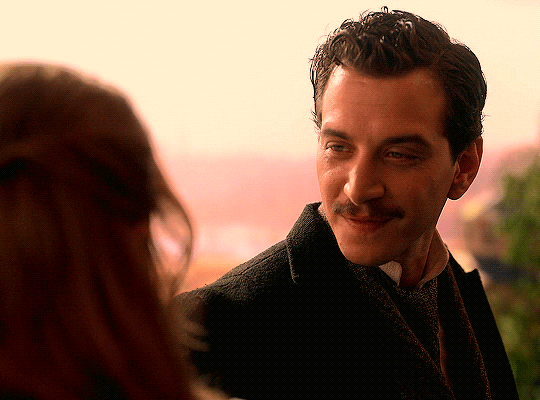
► Personality:
Positive traits: serious, patient, ambitious, clever, brave, motivated, responsible
Negative traits: unmoved, prudent, strict, nitpicky, can come across somewhat cold
Personality type: INFJ
Character’s greatest joy in life: Odessa and her happiness, his children
Fears: Kit getting hurt or dying, failure
Priorities: Odessa, Kit, his children, his work (but Kit, Odessa and the twins go above)
Character’s soft spot: Odessa, Kit, his children
Is this soft spot obvious to others? No
Greatest vulnerability or weakness: Melv wants to make rational decisions but usually ends up making them with his heart instead which can lead into him getting in trouble.
Biggest regret: Not making a move on Odessa before she ended up marrying Kit, letting Kit run away from home.
Secrets of the character: He is in love with his brother’s wife Odessa Avery.
Does anyone else know? Eventually everyone as he ends up marrying her.
Drives and motivations: His career and reputation, happiness of his family
► Past
Hometown: Doncaster, South Yorkshire, England
Type of childhood: Melv was always responsible compared to his younger brother Kit. Because of his wizard status, he had more privileges than Kit did. Melv thought it was alright for him to have these privileges as he was raised to see himself above Kit who was a squib. His mother married a wizard called Thomas Brynn who he got along with fine with.
Religion: Not religious
Dream job: Obliviator
► Present
Occupation: Obliviator for the British Ministry of Magic.
► Magical info
Blood Status: Unknown (he never knew his real father, but his mother is a witch.)
Education: Hogwarts Hogwarts house: Gryffindor Wand: Fir wood with a unicorn hair core, 14 ½ and unbending flexibility There is no doubt that this wood, coming as it did from the most resilient of trees, produced wands that demanded staying power and strength of purpose in their true owners, and that they were poor tools in the hands of the changeable and indecisive. Fir wands were particularly suited to Transfiguration, and favoured owners of focused, strong-minded and, occasionally, intimidating demeanour. Patronus: Rottweiler This is a calm yet confident dog that allows its environment to influence it. People with this Patronus are hard workers and protectors. With a Rottweiler Patronus, you will always be protected from Dementors. Patronus Memory: Odessa smiling at him Boggart: Kit being shot Specialized/Favourite Spells: Memory spells Favourite subject in school: Charms
► Family Mother: Face claim: Julia Roberts

Relationship with them: Melv has always been close with his mother who takes great pride on her older son. Later she doesn’t approve Melv’s relationship with Odessa Avery and him raising his brothers children as his own. The two become more distant.
Stepfather: Thomas Brynn Face claim: - Relationship with them: Thomas and Melv got along well and Melv didn’t know want to admit about the mistreatment of his younger brother that Thomas was responsible of. He later cut all ties with the man.
Brother: Kit Enfield Face claim: Boran Kuzum

Relationship with them: Kit and Melv were always very different. Melv was responsible and serious. He was patient and liked spending time alone while Kit was loud and had a hard time focusing on anything. They got even more distant while Melv was away from home after going to Hogwarts. He didn’t have the knowledge of everything that was happening back at home. He always assumed Kit was just being dramatic. After Kit ran away from home, he was mad and thought that Kit was breaking their mother’s heart. He didn’t see his little brother’s side of things. When the war started Melv was worried about Kit. He kept up with news about it and tried to be on loop on what was happening. During the war Ares gave his gun for Kit to make sure he’d be safe. Eventually Kit got caught using it and Melv was sent to wipe his memories since Ares’s Presence in the war was meant to be a secret. Kit begged his brother to let him keep his memories of Ares and he agreed to it and lied to the ministry. When he learned about Kit’s marriage, he was not supportive. He knew it was a bad decision that would end with Odessa getting hurt. Their relationship didn’t get any better after that. It didn’t help that Melv had secret feelings for his wife. Melv later on regretted his views of the time when Kit was young. He was sad of not making things right with his brother while he was still alive. Kit died without the two of them ever fully making up.
Children: Ottilie & Oaklan Enfield Face claims: Zoey Deutch, Dylan Arnold


Relationship to them: After Kit died during the first world war, Melv raised his children as his own and they had a good relationship.
► Love interests
Mysterie Charmsworth Faceclaim: Lara Jean Chorostecki

Relationship to them: Mystie had a crush on Melv during their Hogwarts years and the two dated for a while after graduating. Mystie was very intense and different from Melv and he was the one to end the relationship which Mystie didn't take it well. After ending the relationship Melv tended to avoid situations where he would have to face Mystie again.
Odessa Avery @cursed-herbalist Faceclaim: Carey Mulligan

Relationship to them:
Melv has has been in love with Odessa since their childhood. Unfortunately, she only seemed to have eyes for his younger brother. Despite their differences and frequent arguing, they made a good team. The two got closer after Kit's death as Melv offered her support when she most needed it and it quickly resulted in growing feelings and happy marriage.
►Enemies Renfield “Ren” Godfrey Face claim: Tom Austen

Relationship to them: Melv hated the man who killed his brother and swore to have revenge against him. With the help of Lunas Avery @cursed-herbalist he eventually managed to destroy one of Ren’s horcruxes thinking they had defeated him for good. *more info to be added*
► Relationships with others
Friends: Willard Hartford, Lunas Avery & Ione Avery @cursed-herbalist Leda Gaunt @gaygryffindorgal eventually *Up for more friends!* Rivals: Kit Enfield, Ares Gaunt @gaygryffindorgal
Person character goes to for advice: His mother Person character feels responsible for or takes care of: Kit, Odessa, his children
Person character feels shy or awkward around: Mystie, Odessa
Person character openly admires: Archer Evermonde ► Habits Spending habits: Stirct with money Smokes: Yes a lot Drinks: Sometimes Other drugs: No What does he do too much of? think about Odessa when he shouldn't, sacrifice his own goals for Kit's sake
What does he do too little of? Speak out on his opinions
Extremely skilled at: memory spells, school
Extremely unskilled at: singing
►Traits
How he feels about himself: Melv is a very confident man who knows how to use his smarts. He puts much pressure on himself but knows his own limits.
How do other people perceive him: Sometimes a little entitled and a know it all but most often as a serious well educated handsome and charismatic man.
Style:

#melv enfield#character profile mine#hp ww1 era#hp ww1 verse#melv has arrived in all his glory#this is a shorter version of my normal profile but i feel like i still wouldn't call it a miniprofile..
8 notes
·
View notes
Text
Introducing Ferdinand Berthier: A Pioneer for the Deaf Community

Ferdinand Berthier emphasized the need for sign language and advocated the rights of Deaf people. Renowned in the 19th-century deaf world, Ferdinand Berthier (1803–1886) had influenced many people. Born deaf in the little French village of Louhans, Berthier's life is evidence of resilience, intellectual ability, and relentless commitment to the rights and education of persons who are deaf or hard of hearing. Deaf education and culture have been permanently changed by his achievements as an educator, advocate, and scholar. Ferdinand Berthier: Trivia Among the first deaf people to get generally acknowledged for their contributions to deaf education and activism was Ferdinand Berthier. Initially a student then employed at the National Institute for Deaf-Mutes in Paris, he In deaf education, Berthier pushed the innovative method of using sign language with written French, which was then somewhat new. He co-founded the Central Society of the Deaf, the first group devoted to the rights and welfare of those deaf or hard-of-hearing individuals. Berthier set up the first annual luncheon for deaf people in Paris in 1848, strengthening community and solidarity. He wrote "Les Sourds-Muets Illustres," a biographical dictionary that included prominent deaf people. Legislative Advocate: His lobbying helped those who are deaf or hard of hearing have major legislative victories, including better access to jobs and education. Berthier highlighted the linguistic diversity of sign language by doing a pioneering study on its history and grammar. He received the Legion of Honour for his societal achievements, one of France's greatest accolades. Modern deaf education and advocacy originated in Berthier's work, and his legacy inspires the deaf population today. What did Ferdinand Berthier do? On September 30, 1803, Ferdinand Berthier was born in Saône-et-Loire, France. He began attending the National Institute for the Deaf in Paris in 1811, seeking fundamental literacy and technical skills to equip him for trade employment. Berthier, however, excelled in the classroom and rose to be among the most senior instructors at the institution by the age of 27. Then, in 1834, Berthier planned and organized the silent feast for Deaf Frenchmen, which, in following years, women, reporters, and government officials attended. Berthier also asked the French government to establish a Deaf community interest representation body. The first official body of this kind that assisted in planning adult education courses and support for those with deafness was the Société Centrale des Sourds-meets. In addition, he authored works on deaf history and culture, the evolution of sign language, and those for deaf rights. He advocated Société Centrale des Sourds-muets to grow internationally. Berthier was the first Deaf person to be given France's highest accolades when he got the Chevalier de la Légion d'honneur in 1849. July 12, 1886, saw his death in Paris. What legacy does he leave behind? He is regarded as one of the leading Deaf rights campaigners, and his campaigning enhanced education and perception throughout America and Europe. His efforts also helped emphasize sign language's value in Deaf culture and support its usage. Silent dinners are being conducted all around nowadays. Background and Early Life of Ferdinand Berthier Birth and Family: Ferdinand Berthier was born on September 28, 1803, in the little French town of Louhans. Born deaf, he was the son of hearing parents who saw his promise and were resolved to give him the greatest education available. Early Childhood: Berthier showed remarkable intelligence and curiosity from a young age despite early 19th-century deaf birth obstacles. His family's encouragement enhanced his progress. Education: Berthier signed up at eight for the National Institute for Deaf-Mutes in Paris, established by eminent Abbé de l'Épée. This institute pioneered deaf education using sign language. Educational Projects Attending the National Institute for the Deaf: Berthier excelled academically. His rapid mastery of sign language and written French set up his future contributions. Mentoring under Abbé Sicard: A successor of Abbé de l'Épée, Berthier was Sicard, who shaped Berthier's teaching philosophy and dedication to the deaf community. Resignation letter for the instructor Beginning a career After graduation, Berthier began working as a lecturer at the National Institute for Deaf Mutes. Early on in his career, he was committed to refining teaching strategies for those with hard of hearing or deafness. First Contributions to Deaf & Education: Berthier immediately became well-known for his creative approaches and dedication to using sign language in education. Education Philosophy Emphasizing sign language, Berthier fervently supported its use in deaf education. Effective communication and learning, he thought, depend on it. Berthier challenged the then-dominant oralist ways by introducing several instructional techniques stressing sign language's cognitive and social advantages. Academic Contributions Apart from his advocacy and teaching activities, Berthier was a prolific researcher. After studying the background and grammar of sign language, he produced original studies stressing its linguistic complexity and richness. His academic writings helped to establish sign language as a valid language in and of itself. Berthier's biographical dictionary of eminent deaf people, "Les Sourds-Muets Illustres," was his most crucial academic production. This extensive project challenged preconceptions about deafness by recording the life and accomplishments of deaf people from many professions, thereby highlighting their contributions to society. For the deaf community, the dictionary is still a priceless historical source of inspiration. Research-Based Interpretive Notes on Ferdinand Berthier's Legacy Innovations in education: Berthier underlined the need for a bilingual approach in deaf education, supporting written French and sign language. For deaf pupils, this approach helped to promote social integration and good communication. Promoting sign language's cognitive and social advantages and dispelling stereotypes about deaf people's capacity, he wrote multiple textbooks and essays on deaf education. Efforts of Organisation and Advocacy: One of the earliest groups aiming at the rights and welfare of the deaf or hard of hearing, Berthier co-founded the Société Centrale des Sourds-Muets (Central Society of the Deaf). By planning yearly banquets for deaf people in Paris, he promoted community and solidarity that helped to close the distance between the deaf and hearing populations. Scholarly contributions: Berthier underlined the linguistic complexity and richness of sign language by doing a pioneering study on its history and structure. His efforts set the groundwork for sign language's official linguistic recognition. "Les Sourds-Muets Illustres," his biographical dictionary, challenged preconceptions about deafness by recording the life and accomplishments of eminent deaf people and thereby benefiting society. Legislative effect: Thanks mainly to Berthier's lobbying, laws about people who are deaf or hard of hearing have advanced significantly. This includes better access to His work, which helped to bring sign language and deaf people's rights front and centre. Awards acknowledgements: For his contributions to society—especially in deaf education and advocacy��Berthier received the Legion of Honour, one of France's most significant accolades. How Did Ferdinand Berthier Die July 12, 1986, saw the death of Ferdinand Berthier. His death's specific circumstances are not well recorded. Still, he is well-known for leading a long and active life that immensely helped the deaf population with campaigning and education—with his passing, a tremendous period of advancement for the rights and recognition of deaf people—to which he had devoted most of his life—marked the end. Long after Berthier passed away, his legacy kept impacting the profession of deaf education and the larger deaf community. Conclusion The deaf community greatly benefited from Ferdinand Berthier's schooling, campaigning, and scholarship activities. His commitment to advancing sign language and enhancing the quality of life for deaf people inspires and shapes current deaf and nbsp; education and advocacy initiatives. Read the full article
0 notes
Text
On this day in Wikipedia: Friday, 12th April
Welcome, καλωσόρισμα (kalosórisma), tervetuloa, chào mừng 🤗 What does @Wikipedia say about 12th April through the years 🏛️📜🗓️?

12th April 2022 🗓️ : Death - Gilbert Gottfried Gilbert Gottfried, American comedian, actor, and singer (b. 1955) "Gilbert Jeremy Gottfried (February 28, 1955 – April 12, 2022) was an American stand-up comedian and actor, best known for his exaggerated shrill voice, strong New York accent, and his edgy, often controversial, sense of humor. His numerous roles in film and television included voicing Iago in..."

Image licensed under CC BY 2.0? by Super Festivals from Ft. Lauderdale, USA
12th April 2017 🗓️ : Death - Charlie Murphy (actor) Charlie Murphy, American actor and comedian (b. 1959) "Charles Quinton Murphy (July 12, 1959 – April 12, 2017) was an American comedian, actor, and writer. He was best known as a writer and cast member of the Comedy Central sketch-comedy series Chappelle's Show as well as the co-star of the sitcom Black Jesus. He was the older brother of actor and..."

Image licensed under CC BY 3.0? by Timothy M. Moore at https://www.flickr.com/photos/photocology/
12th April 2014 🗓️ : Event - Great Fire of Valparaíso A fire broke out in the hills near Valparaíso, Chile, eventually destroying at least 2,500 homes and leaving approximately 11,000 people homeless. "The Great Fire of Valparaíso (Spanish: Gran Incendio de Valparaíso) started on 12 April 2014 at 16:40 local time (19:40 UTC), in the hills of the city of Valparaíso, Chile. The wildfire destroyed at least 2,500 homes, leaving 11,000 people homeless. An additional 6,000 people were evacuated from the..."
12th April 1974 🗓️ : Birth - Sylvinho Sylvinho, Brazilian footballer and manager "Sylvio Mendes Campos Júnior (born 12 April 1974), commonly known as Sylvinho (sometimes alternatively spelled Silvinho), is a Brazilian football manager and former player, currently coaching the Albania national football team. Formerly a left back, he began his career at Corinthians. He was signed..."

Image licensed under CC BY-SA 4.0? by Steffen Prößdorf
12th April 1924 🗓️ : Birth - Curtis Turner Curtis Turner, American race car driver (d. 1970) "Curtis Morton Turner (April 12, 1924 – October 4, 1970) was an American stock car racer who won 17 NASCAR Grand National Division races and 38 NASCAR Convertible Division races. Throughout his life, he developed a reputation for drinking and partying. He also fought to form a drivers union, which..."

Image licensed under CC BY 2.0? by Freewheeling Daredevil
12th April 1823 🗓️ : Birth - Alexander Ostrovsky Alexander Ostrovsky, Russian playwright and translator (d. 1886) "Alexander Nikolayevich Ostrovsky (Russian: Алекса́ндр Никола́евич Остро́вский; 12 April [O.S. 31 March] 1823 – 14 June [O.S. 2 June] 1886) was a Russian playwright, generally considered the greatest representative of the Russian realistic period. The author of 47 original plays, Ostrovsky "almost..."

Image by Vasily Perov
12th April 🗓️ : Holiday - National Redemption Day (Liberia) "The following are public holidays in Liberia...."

Image licensed under CC BY 3.0? by blk24ga
0 notes
Text
History
October 16, 1701 - Yale University was founded in Killingworth, Connecticut (as the Collegiate School of Connecticut). The school moved to New Haven in 1716. Two years later, the name was changed to Yale College to honor Elihu Yale, a philanthropist. In 1886, it became Yale University.
October 16, 1793 - Queen Marie Antoinette was beheaded during the Reign of Terror following the French Revolution. She was the wife of King Louis XVI and had become the symbol of the people's hatred for the old regime due to her extravagance and frivolity. According to legend, she responded, "Let them eat cake," when told poor people had no bread.
October 16, 1853 - The Crimean War began after the Turkish Ottoman Empire declared war on Russia, Britain, France and portions of Italy allied with the Turks against Russia. It became the first war observed up close by newspaper reporters and photographers. One of the battles was immortalized in Tennyson's poem, The Charge of the Light Brigade. Amid poor sanitary conditions, disease killed many wounded French and British troops. British nurse Florence Nightingale then pioneered modern-style sanitation methods, saving many lives.
October 16, 1859 - Fanatical abolitionist John Brown seized the Federal Arsenal at Harpers Ferry with about 20 followers. Three days later, Brown was captured and the insurrection was put down by U.S. Marines under the command of Col. Robert E. Lee. Brown was convicted by the Commonwealth of Virginia of treason, murder, and inciting slaves to rebellion, and was hanged on December 2, 1859.
October 16, 1916 - The first birth control clinic in America was opened in Brooklyn, New York, by Margaret Sanger, a nurse who worked among the poor on the Lower East Side of New York City.
October 16, 1946 - Ten former Nazi leaders were hanged by the Allies following their conviction for war crimes at Nuremberg, Germany.
October 16, 1964 - China detonated its first nuclear bomb at the Lop Nor test site in Sinkiang.
October 16, 1978 - Cardinal Karol Wojtyla of Poland was elected Pope. He was the first non-Italian Pope chosen in 456 years and took the name John Paul II.
October 16, 1995 - The Million Man March took place in Washington, D.C., under the direction of Nation of Islam leader Louis Farrakhan, who delivered the main address to the gathering of African American males.
Birthday - American teacher and journalist Noah Webster (1758-1843) was born in West Hartford, Connecticut. His name became synonymous with "dictionary" after he compiled the first American dictionaries of the English language.
Birthday - Irish poet and playwright Oscar Wilde (1854-1900) was born in Dublin, Ireland. Best known for his comedies including; The Importance of Being Earnest. And his novel The Picture of Dorian Gray in which he wrote, "There is only one thing in the world worse than being talked about and that is not being talked about."
Birthday - David Ben-Gurion (1886-1973) was born in Plonsk, Poland. He was largely responsible for founding the modern state of Israel in 1948 and is revered as "Father of the Nation."
Birthday - American playwright Eugene O'Neill (1888-1953) was born in New York City. He wrote more than 35 plays and was the first American dramatist awarded a Nobel Prize for literature. He also received four Pulitzers. His dramas, which dealt realistically with psychological and social problems, included; Beyond the Horizon, The Iceman Cometh, The Emperor Jones and Long Day's Journey into Night.
Birthday - American jurist William O. Douglas (1898-1980) was born in Maine, Minnesota. He served as an associate justice on the Supreme Court for 36 years and was also a world traveler, conservationist, outdoorsman and author.
1 note
·
View note
Text
Gothic Literature & the Victorian Era
Alongside the 19th century revamp of gothic architecture that I previously discussed, was the birth of some pretty influential literature that contributed heavily to the goth movement. This fiction / literature spout took place in the Victorian era of England; with the corrupt societal norms of this time being a huge factor in its development.
Gothic Literature is defined by fiction that typically explores themes of life & death, romance and the supernatural conjouring up intense emotion, with the novels being set somewhere gloomy and mysterious; coupling the eerie story lines with cynically picturesque backdrops. Gothic literature was first coined gothic by Horace Walpole in 1764 in his “gothic story” the castle of otranto; in which he used the term to communicate the barbaric nature of his novel; taking influence from the Middle Ages, the Roman Empire and its architecture as a result. Although this was almost a joke to begin with and didn’t particularly kickstart the gothic literature period; fast forward to the 19th century and gothic novels were appearing left right and centre, with some of the most famous examples being Bram Stokers 1897 novel Dracula, Mary Shelley’s Frankenstein which she wrote in 1818, and 1886s Jekyll and Hyde by Robert Louis Stevenson. The gothic style of literature gave 19th century writers an outlet to explore taboo themes such as sexuality, race, religion and the repression that came along with these; that was particularly prominent in the Victorian time period.
The Victorian era was a time of many advancements such as the industrial revolution and Charles Darwin’s theory of evolution; but along with this came other scientific theories that caused harsh moral and social implications; particularly for women living in the patriarchal society at the time. Scientists began to make a link between a reduced amount of sperm causing a reduced amount of blood; which was believed to cause not only physical illness but a sense of lack of moral sanity. This theory “sanguine economy” in turn lead to sexual drive and intercourse being viewed as immoral and evil; placing men and women in strict gender roles in which women should have no sexual desires. The corrupt state of Victorian society was reflected heavily in gothic literature; with everyone’s new found fear of the unknown due to all these daunting theories popping up being demonstrated meticulously throughout the novel Dracula.
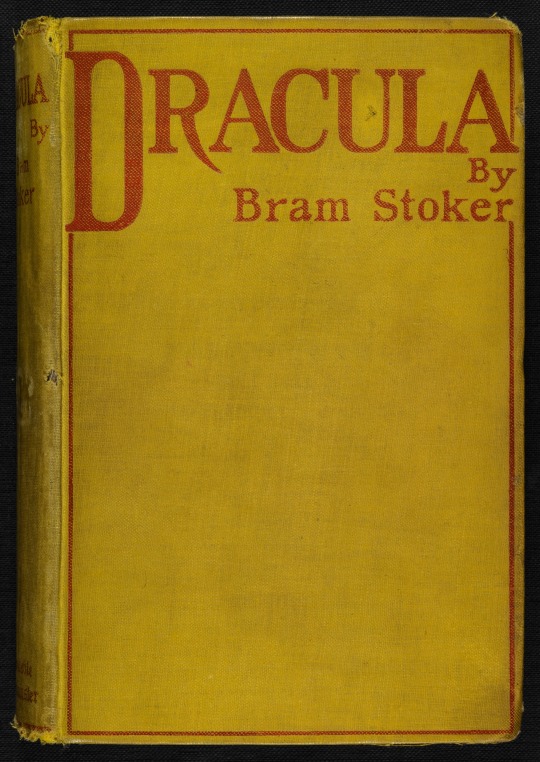
Draculas author Bram Stoker challenges societal expectations and the roles that were allocated to men and women; fully addressing the taboo topics of this time period, by portraying his characters in ways that were unfamiliar, abnormal or wrong to his audience. For example the first 3 women that are introduced in the book known as “the weird sisters” that Jonathon encounters at the beginning of the novel at his stay at Draculas Castle; are a symbol of female sexuality; demonstrated by his line “there was something about them that made me uneasy … i felt in my heart a wicked, burning desire that they would kiss me with those red lips”. Here stoker begins to dissolve the idea that women are not of a sexual nature, which is furthered by Jonathon actually expressing his desire to be penetrated by the weird sisters. The gender rules society had been brainwashed with also created a stigma around homosexuality; and the pure thought of these gender roles being reversed was complete madness to Victorians; which Stoker almost scrutinises during this passage. Not only does this novel tackle sexuality; but it also references the religious fears held by Victorian society; that stem from the idea of being able to be “sexually impure”. Those that would “waste” sperm through sexual acts would be described in religious passages as “the pale bodied” and having “pale countenance” . These phrases combined with “bloodless body” create a link between Draculas pale complexion and his thirst for blood and the intense sexual desire of victorians; but the difference is Dracula would sucombe to his urges; almost encouraging victorians to do the same.
In conclusion, the novel and Count Dracula himself is a metaphor for societies anxieties in this era such as sexuality and religion, which as pointed out by Radcliffe (Unknown Year) are still fears that exist in western society today. This research has really reinforced to me how the term gothic is used all the way throughout history; and helping me begin to understand what has informed goth today; for example their overt approach to sexuality. Although this novel is just one example; all other examples of gothic literature follow the same narrative in which they tackle time relevant taboo topics; such as Jekyll and Hyde in which Stevenson explores the implications of repressing and disguising sexual desires, many of which are still relevant and can be applied to today. Conducting this research has also given me a potential article idea, as i particularly enjoyed looking at Dracula; im considering writing an article that delves into its theme of sexuality further and also links it to the approach to sexuality in the gothic periods that came after the Victorian era such as the 1980s.
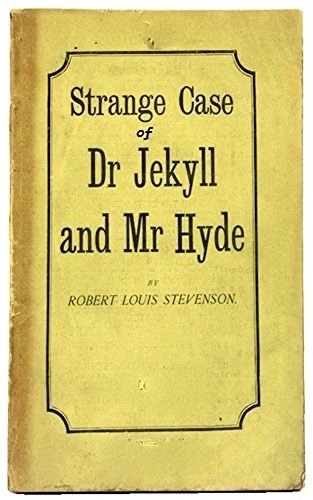
Not only was Victorian period significant in relation to the goth subculture because of its literature but its fashion was quite the influence too, particularly their mourning attire. Due to the high mortality rate throughout the Victorian period death was an ever present thing; so they utilised the way they dressed as a way of expressing their sadness. This way of dressing was representative of an outward expression of emotion fitting perfectly with the romantic period which gained its name because of how its writers were able to conjure intense emotions through their writing.
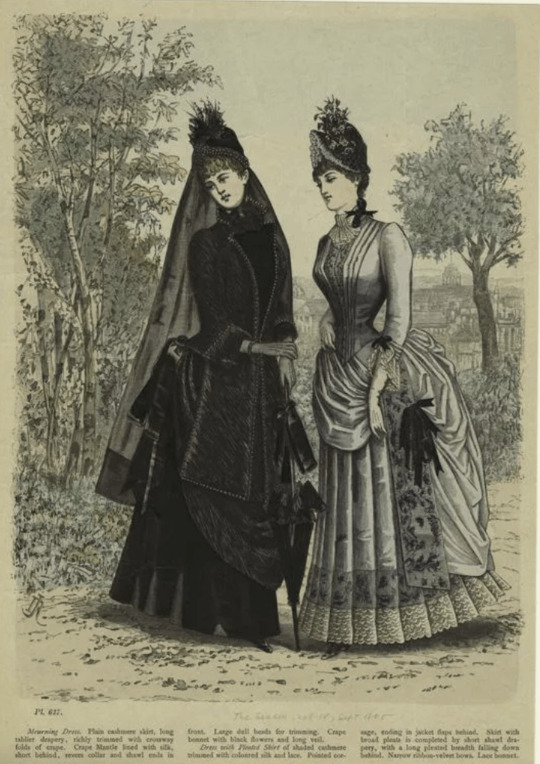
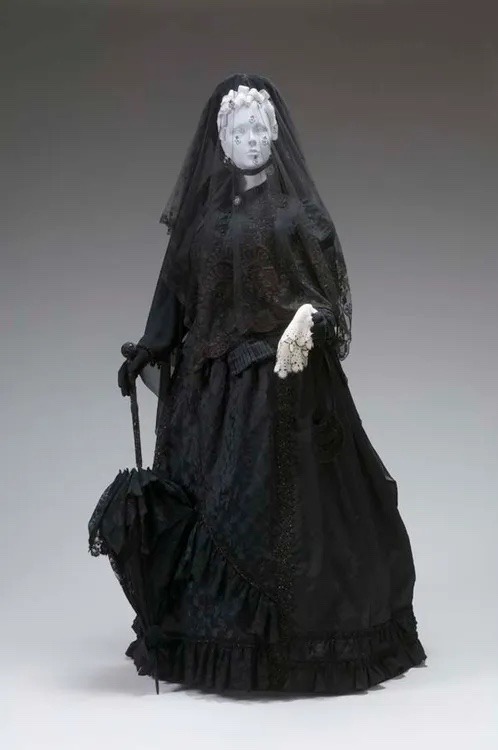
As you can see here there are clear links between victorian mourning attire and elements of goth fashion; corsets for example; as well as the engrained theme of the colour black.
0 notes
Text
Queer Calendar 2023
We put together a calendar of key (mostly queer) dates at the start of the year to help us with scheduling - so I thought I’d share it around! Including pride and visibility days, some queer birthdays and anniversaries, and a few other bits and bobs. Click the links for more info - I dream one day of having a queer story for every day of the year!
This is obviously not an exhaustive list - if I’ve overlooked something important to you, feel free to add it in the reblogs!
January
3 - Bisexual American jazz-age heiress Henrietta Bingham born 1901
8 - Queer Australian bushranger Captain Moonlite born 1845; gay American art collector Ned Warren born 1860
11 - Pennsylvania celebrates Rosetta Tharpe Day in honour of bisexual musician Rosetta Tharpe
12 - Japanese lesbian author Nobuko Yoshiya born 1896
22 - Lunar New Year (Year of the Rabbit)
24 - Roman emperor Hadrian, famous for his relationship with Antinous, born 76CE; gay Prussian King Frederick the Great born 1712
27 - International Holocaust Remembrance Day
February
LGBT+ History Month (UK, Hungary)
Black History Month (USA and Canada)
1 - Feast of St Brigid, a saint especially important to Irish queer women
5 - Operation Soap, a police raid on gay bathhouses in Toronto, Canada, spurs massive protests, 1981
7 - National Black HIV/AIDS Awareness Day (USA)
18 - US Black lesbian writer and activist Audre Lorde born 1934
12 - National Freedom to Marry Day (USA)
19-25 - Aromantic Spectrum Awareness Week
March
Women’s History Month
1 - Black Women in Jazz and the Arts Day
8 - International Women’s Day
9 - Bi British writer David Garnett born 1892
12 - Bi Polish-Russian ballet dancer Vaslav Nijinsky born 1889 or 1890
13 March-15 April - Deaf History Month
14 - American lesbian bookseller and publisher Sylvia Beach born 1887
16 - French lesbian artist Rosa Bonheur born 1822
20 - Bi US musician Rosetta Tharpe born 1915
21 - World Poetry Day
24 - The Wachowski sisters’ cyberpunk trans allegory The Matrix premiers 1999
April
Jazz Appreciation Month
Black Women’s History Month
National Poetry Month (USA)
3 - British lesbian diarist Anne Lister born 1791
8 - Trans British racing driver and fighter pilot Roberta Cowell born 1918
9 - Bi Australia poet Lesbia Harford born 1891; Easter Sunday
10 - National Youth HIV & AIDS Awareness Day (USA)
14 - Day of Silence
15 - Queer Norwegian photographer and suffragist Marie Høeg born 1866
17 - Costa-Rican-Mexican lesbian singer Chavela Vargas born 1919
21-22 - Eid al-Fitr
25 - Gay English King Edward II born 1284
26 - Lesbian Day of Visibility; bi American blues singer Ma Rainey born 1886
29 - International Dance Day
30 - International Jazz Day
May
1 - Trans British doctor and Buddhist monk Michael Dillon born 1915
7 - International Family Equality Day
7 - Gay Russian composer Pyotr Tchaikovsky born 1840
15 - Australian drag road-trip comedy The Adventures of Priscilla, Queen of the Desert premiers in 1994
17 - IDAHOBIT (International Day Against Homophobia, Biphobia, Intersexism and Transphobia)
18 - International Museum Day
19 - Agender Pride Day
22 - US lesbian tailor and poet Charity Bryant born 1777
22 - Harvey Milk Day marks the birth of gay US politician Harvey Milk 1930
23 - Premier of Pride, telling the story of the 1980s British activist group Lesbians and Gays Support the Miners
24 - Pansexual and Panromantic Awareness and Visibility Day; Queer Chinese-Japanese spy Kawashima Yoshiko born 1907
26 - queer American astronaut Sally Ride born 1951
29 - Taiwanese lesbian writer Qiu Miaojin born 1969
June
Pride Month
Indigenous History Month (Canada)
3 - Bisexual American-French performer, activist and WWII spy Josephine Baker born 1906
5 - Queer Spanish playwright and poet Federico García Lorca born 1898; bi English economic John Maynard Keynes born 1883
8 - Mechanic and founder of Australia’s first all-female garage, Alice Anderson, born 1897
10 - Bisexual Israeli poet Yona Wallach born 1944
12 - Pulse Night of Remembrance, commemorating the 2012 shooting at the Pulse nightclub, Orlando
14 - Australian activists found the Gay and Lesbian Kingdom of the Coral Sea Islands in 2004
18 - Sally Ride becomes the first know queer woman in space
24 - The first Sydney Mardi Gras 1978
25 - The rainbow flag first flown as a queer symbol in 1978
28 - Stonewall Riots, 1969
28 June-2 July - Eid al-Adha
30 - Gay German-Israeli activist, WWII resistance member and Holocaust survivor Gad Beck born 1923
July
1 - Gay Dutch WWII resistance fighter Willem Arondeus killed - his last words were “Tell the people homosexuals are no cowards”
2-9 - NAIDOC Week (Australia) celebrating Aboriginal and Torres Strait Islander culture
6 - Bi Mexican artist Frida Kahlo born 1907
12 or 13 - Roman emperor Julius Caesar born c.100BCE
14 - International Non-Binary People’s Day
23 - Shelly Bauman, owner of Seattle gay club Shelly’s Leg, born 1947; American lesbian cetenarian Ruth Ellis born 1899; gay American professor, tattooist and sex researcher Sam Steward born 1909
25 - Italian-Australian trans man Harry Crawford born 1875
August
8 - International Cat Day
9 - Queer Finnish artist, author and creator of Moomins Tove Jansson born 1914
9 - International Day of the World's Indigenous Peoples
11 - Russian lesbian poet Sofya Parnok born 1885
12 - Queer American blues musician Gladys Bentley born 1907
13 - International Left-Handers Day
22 - Gay WWII Dutch resistance fight Willem Arondeus born 1894
24 - Trans American drag queen and activist Marsha P Johnson born 1945
26 - National Dog Day
30 - Bi British author Mary Shelley 1797
31 - Wear it Purple Day (Australia - queer youth awareness)
September
5 - Frontman of Queen Freddie Mercury born 1946
6 - Trans Scottish doctor and farmer Ewan Forbes born 1912
13 - 1990 documentary on New York’s ball culture Paris is Burning premiers
15-17 - Rosh Hashanah
16-23 - Bisexual Awareness Week
17 - Gay Prussian-American Inspector General of the US Army Baron von Steuben born 1730
23 - Celebrate Bisexuality Day
24 - Gay Australian artist William Dobell born 1889
30 - International Podcast Day
October
Black History Month (Europe)
4 - World Animal Day
5 - National Poetry Day (UK)
5 - Queer French diplomat and spy the Chevalière d’Éon born 1728
8 - International Lesbian Day
9 - Indigenous Peoples’ Day (USA)
11 - National Coming Out Day
16 - Irish writer Oscar Wilde born 1854
18 - International Pronouns Day
22-28 - Asexual Awareness Week
26 - Intersex Awareness Day
31 - American lesbian tailor Sylvia Drake born 1784
November
8 - Intersex Day of Remembrance
12 - Diwali; Queer Mexican nun Sor Juana Inés de la Cruz born c.1648
13-19 - Transgender Awareness Week
20 - Trans American writer, lawyer, activist and priest Pauli Murray born 1910; Transgender Day of Remembrance
27 - Antinous, lover of the Roman emperor Hadrian, born c.111; German lesbian drama Mädchen in Uniform premiers, 1931
29 - Queer American writer Louisa May Alcott born 1832
December
AIDS Awareness Month
1 - World AIDS Day
2 - International Day for the Abolition of Slavery
3 - International Day of Persons with Disabilities
8 - Pansexual Pride Day; queer Swedish monarch Christina of Sweden born 1626
10 - Lesbians and Gays Support the Miners host Pits and Perverts concern to raise mining for striking Welsh miners, 1984
14 - World Monkey Day
15 - Roman emperor Nero born 37CE
24 - American drag king and bouncer Stormé DeLarverie born 1920
25 - Christmas
29 - Trans American jazz musician Billy Tipton born 1914
#calendar#queer calendar#queer observances#pride days#queer history#lgbt#lgbtq#lgbt history#gay history#trans history#queer#gay#trans#lesbian#lesbian history
257 notes
·
View notes
Text
✧ CELEBRITY BIRTH CHART ANALYSIS ✧
(history edition 📚)
— rasputin (part 1)

ㅤ
PART TWO: HIS BIRTH CHART
hey guys! ♡ i figured this would be a unique post to make: this is a birth chart analysis on grigori rasputin. PLEASE NOTE that i do not idolize or admire this man in any way, i’m interested in his story and reading his chart ONLY. plus, i have a thing for european history, especially russian history 🕌
i would also like to credit wikipedia for description and pictures as well as some youtube videos, it helped me get a full grasp on rasputin’s tale.
(i placed tw’s at the paragraphs where is it required; i’m terrible at putting tw’s guys)
ㅤ
youtube
ㅤ

ㅤ
✧ the history of rasputin ✧
— a brief essay
ㅤ
✦ the beginning of grigori rasputin ✦
grigori yefimovich novykh was born in the village of pokrovskoe in siberia, russian empire on january 21, 1869. back then, russia wasn’t considered a country yet, but an empire; it was also referred to as “imperial russia”. during the time of his living, the last ever russian czar, nicholas the II, was in his reign.
rasputin was born as a peasant along with his parents. he was one of the few children in his family that survived until adulthood.
ㅤ
allegedly, rasputin was illerate and uneducated as a child, due to the fact that it was common for peasants/lowered class to not know how to read or write. during his teen and young adult years, people suspect that rasputin was a bit of a delinquent. accordingly, he often disrespected his authority figures, dealt with alcohol, and committed small thefts. however, there is not much evidence to prove he has.
ㅤ
around 1886, rasputin met his wife, praskovya dubrovina, in abalak, russia—a peasant woman herself. only after a few months of their partnership, they decided to get married around february 1887. rasputin and praskovya were able to breed over 8 children but only 3 made it to adulthood. rasputin’s wife remained in the village of pokrovskoe, staying loyal to him for all of his life.
ㅤ

grigori’s hometown, pokrovskoye, in 1912 AND grigori with his children.
ㅤ
around 1897, rasputin began to invest in the topic of religion and underwent a holy expedition where he left his hometown and his family. in exactly 1897, he took a trip to the saint nicholas monastery at verkhoturye; evidently, this is where he happened to learn how to read, write, and undergo a huge religious awakening. the reason on why he left his hometown is unknown, but people suspect it was because of a spiritual or emotional crisis, or he was running away from a charge of horse theft. he returned to his village with an unkempt look and a new behavior—he was sworn to be vegetarian, prayed often, sung songs, and laid off of alcohol. rasputin committed to being a holy wanderer for the rest of the late 1890’s.
ㅤ
(NEXT PARAGRAPH — tw: mentions of sexual themes)
around the early 1900’s, rasputin started to develop a slight popularity and gain a few followers that mainly consisted of his family members and his locals. they would often schedule days where they pray and participate in religious practicings. however, locals were wary that rasputin was forcing his followers to engage in sexual activities such as self-flagellation as well as singing inappropriate songs. there was even a specific claim that rasputin would make the female followers in his group bathe him before every meetup. others have also stated that he could’ve also been khylst. however, all of these allegations haven’t been proven completely.
ㅤ
✦ rasputin’s fame ✦

a picture of rasputin with bishop theofan and makary in the year 1909.
ㅤ
rasputin started to gain fame in siberia starting in the 1900’s. around 1904 or 1905, he gained a reputation in the city of kazan for being a “holy man” who can help people with their spiritual crises and anxieties. according to historians, rasputin was talented in herbalism, hypnotism, and spirituality. he also gained a bit of a reputation for being a “ladies man”, in which accordingly, tons of women were attracted to and allured by him. although, he had an intriguing image, rasputin never bothered to bathe; so others also noticed how smelly he was.
ㅤ
his charisma, air of mystery, and talents seemed to fascinate others so astoundingly that it encouraged local church officials and the father superior of the seven lakes monastery outside of kazan to mention rasputin to bishop sergei—who was the rector of the saint petersburg theological seminary at the alexander nevsky monastery—as well as offer rasputin to travel to saint petersburg.
ㅤ
during the meeting with bishop sergei, rasputin met archimandrite theofan, who was the inspector of the theological seminary; theofan was also well-connected around saint petersburg. (side note: theofan later served as confessor to the czar and czarina) theofan was fascinated with rasputin. they became close friends and theofan offered for him to join the salons they would attend—which were events where people would discuss and learn about religious-related things through talking to one another. at the time, nobles were becoming vastly interested in spirituality and theosophy as well as the occult and the supernatural. joseph fuhrmann claimed that the nobles were "bored, cynical, and seeking new experiences". rasputin started to develop a reputation for being a strange mystique, yet a subject of curiosity. apparently, most of rasputin’s popularity could’ve came from the fact that he was the first holy man that was a native russian that gained fame in saint petersburg.
ㅤ
✦ rasputin meets the czar and his family ✦

czar nicholas the II and his family + alexei, to the far right AND rasputin with the czarina alexandria feodorovna with her children and their nurse in 1908.
ㅤ
by 1905, rasputin was very close with the nobles, specifically the daughters of nicholas I of montenegro: princess militsa and princess anastasia. they were known as the “black princesses” because of their interest in the occult. this led to rasputin finally being introduced to the czar and his family. when rasputin first met czar nicholas the II on november 1, 1905 at the peterof palace, czar nicholas wrote in his diary that him and his wife (the czarina) alexandria feodorovna “made the acquaintance of a man of god – grigory, from tolobsk province.” and so on, rasputin would consistently leave and return to saint petersburg to meet them. from visiting on july 1906 to visiting in october, which is when he met the czar’s whole family (all 4 of his daughters and son)
ㅤ
(NEXT 3 PARAGRAPHS — tw: mentions of sickness and health problems)
rasputin’s influence came mostly from the royal family believing he certainly had magical healing powers. according to historian marc derek, alexandria had a “passionate attachment” to rasputin as she believed that he was a miracle worker for her only son, alexei nikolaevich, who suffered harshly from hemophilia during his lifetime (hemophilia is a condition where wounds, cuts, injuries, and bruises recover slowly due to constant, unstoppable bleeding)—alexei’s condition mostly came from inbreeding. harold shukman claimed that rasputin was “an indispensable member of the royal entourage” because he was considered very much needed for alexei’s health (by alexandria), while nicholas the II wanted alexei alive to continue the family legacy as czar in the future, considering the fact that he was the only heir in the family. there would be several times where alexandria would summon rasputin to their royal home to cure alexei on his hemophilia episodes.
ㅤ
in the spring of 1907, alexei was suffering from an internal hemorrhage. alexandria contacted rasputin to pray for his recovery. surprisingly, alexei healed the next morning. other people around the royal family including the czarina’s friend, anna vryubova, believed that rasputin truly had miracle powers. from there, rasputin began to acquire several nobles that supported him.
during the summer of 1912, alexei fell ill again developing a hemorrhage in his thigh and groin from a carriage ride. alexei was in great pain and suffering from a high fever which seemed as though he was close to dying. alexandria wrote to rasputin to send prayers to alexei once again. accordingly, rasputin wrote quickly back “god has seen your tears and heard your prayers. do not grieve. the little one will not die. do not allow the doctors to bother him too much.” alexei’s condition stayed the same the next morning, but at this point, alexandria began to confide in rasputin for her son’s health, and alexei recovered the day after that morning. now alexandria believed rasputin was the only person who can cure him. she believed he was “essential for his survival.”
ㅤ
it was a mystery on how rasputin was able to recover alexei. even one of the physicians who looked after alexei, dr. s. p. fedorov, claimed that it was completely confusing on how rasputin did it. an historian, robert k. massie said that it is possible that rasputin cured alexei by telling the family to take alexei off the aspirin they were using and to not bother him so he can rest, or by calming down alexandria through his prayers, he was able to take the emotional stress off of alexei so he can heal faster. rasputin might’ve used hypnosis on alexei as well.
ㅤ
✦ the disputes and disagreements surrounding rasputin ✦

rasputin with his followers and admirers in 1914 ,, a caricature of rasputin with the czar and czarina ,, AND rasputin with his wife and daughter, maria rasputin.
ㅤ
(NEXT 2 PARAGRAPHS — tw: mentions of sexual themes like r*pe)
due to rasputin’s healing powers, he gained tons of status and power; he was greatly respected as well. czar nicholas the II made rasputin the lamplighter—where he made sure the lamps were lit in the palace for religious icons in the palace—and this allowed rasputin to have constant access to the royal family and the palace itself. in december 1906, rasputin decided to request a name change to czar nicholas the II; he wanted to change his name to “rasputin-noviy”, which means “rasputin-new” in russian. rasputin took advantage of his popularity by accepting and indulging in the regular sexual admiration and affection from his female followers as well as expanding his influence.
ㅤ
soon around 1909 to 1910, rasputin became controversial. there has been allegations that rasputin was going against church doctrines, having unruly influence over the czar, and having an affair with the czarina; rasputin was even accused of rape. rasputin started to gain lots of opposition from others as well as from prominent authorities. in 1907, the local clergy in rasputin’s hometown exposed rasputin in "spreading false, khylst-like doctrines". higher officials tried to expose rasputin to the czar himself by requesting further investigation into his activity, but the czar did not take action in exiling him from saint petersburg or cutting him off completely from the royal power. in 1909, one of rasputin’s earlier followers, kehioniya berlatskaya, accused rasputin of rape. it is been said that rasputin has sexually harassed and assaulted many of his female supporters and acting inappropriate during explorations to the royal family. there has even been accusations that rasputin would act sexually inappropriate with the women in the palace, including some of the daughters of czar nicholas the II.
ㅤ
during world war I, the economy of the russian empire was declining because the government wasn’t do much work or action for the citizens; it was not possible anymore for citizens to gain security and land through fighting and working for their country; the army forces were on the brink of decline as well. people blamed alexandria and rasputin for this as they were becoming blatantly hated. at this time, czar nicholas the II left the palace to fight in a war. he trusted his wife, alexandria, to take over while he is gone, and for rasputin to be her assistant. however, people weren’t very content about this. one member of the duma, vladimir purishkevich stated that the tsar and the government body had “been turned into marionettes, marionettes whose threads have been taken firmly in hand by rasputin and the empress alexandra fyodorovna – the evil genius of russia and the czarina…who has remained a german on the russian throne and alien to the country and its people." this explains how they assume that rasputin is the reason why there is a lack of war power and a proper government, so the officials decided to assassinate him.
ㅤ
✦ the first assassination attempt of rasputin ✦
(NEXT 5 PARAGRAPHS — tw: mentions of sexual themes; vague mentions of torture, death, m*rder)
on july 12, 1914, a 33-year old peasant woman named chionya guseva, tried to kill rasputin by stabbing him in the stomach outside of his home in his hometown. although it seemed as though rasputin wasn’t going to make it, he eventually survived the wound after recovering from a surgery in a hospital in tyuman.
ㅤ
guseva was a follower of sergei trufanov, an ex-priest who formerly supported rasputin until he exposed him for sexual-exploitation and social-climbing. sergei trufanov had tried to cut rasputin from the royal family in 1911. however, it failed, which caused him to lose his position as priest. therefore, people have assumed that sergei trufanov might’ve instigated rasputin’s assassination attempt. but, guseva stated that she discovered about rasputin herself and she believed he was a "false prophet and even an antichrist". she was later criticized by officials; they assumed she was mentally insane so they sent her to a mental asylum after the incident.
ㅤ
✦ the second and real assassination: rasputin’s death ✦
no one genuinely knows how rasputin exactly died. we only have his autopsy photos. however, this is the common event mentioned of how he was assassinated:
ㅤ
on the night of december 29, 1916, prince feliks yusupov, the husband of the czar’s niece; vladimir mitrofanovich, the outspoken member of the duma; and grand duke dmitry palvovich, the czar’s cousin, plotted the official assassination of grigori rasputin. they invited rasputin to a small party in yusupov’s home. when rasputin came, they offered him stuff to eat like teacakes. however, all of the food was laced with cyanide (poison) enough to kill 3 to 4 men.
ㅤ

the assassinators of grigori rasputin: vladimir mitrofanovich, grand duke dmitry palvovich, and prince yusupov [in order]
ㅤ
accordingly, rasputin ate ALL of his desserts and foods. despite that, he was still alive and felt fine. that is when the men decided to give rasputin laced wine as well. apparently, rasputin drunk over 3 glasses of the wine, yet he was still alive. the men decided that rasputin wouldn’t budge from the poison so one of them pulled out a gun and shot him in the chest; there, he collapsed to the ground, the men presuming he is dead. this is when one of the men took rasputin’s coat and hat, wore them, went out, and disguised as him coming back from the party to cover up any suspicion on his whereabouts while the other men went out for a while. however, the other men came back to a “dead” rasputin jumping up to attack them. rasputin then ran out of the home to the palace courtyard where he was shot 2 more times and accordingly beaten with a dumbbell by prince yusupov. the morning after, rasputin’s body was dumped into freezing water of the malaya NEFCO river from a bridge. it has been said that rasputin was last seen alive in the cold river struggling to get out clasping onto a block of ice.
ㅤ
subsequently, rasputin was found dead on january 1, 1917 frozen under the iced surface of the river—around 640 feet downstream from the bridge he was dumped from.
ㅤ
✦ rumors ✦
there has been many rumors, urban legends, and mysteries surrounding rasputin’s death. nevertheless, it is safe to say that rasputin’s mysterious and scary persona has caused others to make bizarre assumptions about it. others say he was burned alive while others say he “came back to life” at his funeral and stared at the person who was preparing his coffin and smiled at him. others even say (mostly in a joking manner) that rasputin is a former reincarnate of putin, the current president of russia. others have said that rasputin was a demon or witch of some sort and his repulse to bathing was because he could die in the water.
ㅤ
✦ conclusion ✦
although we may never know the real story of rasputin, we can say that his history is truly intriguing to learn about. grigori rasputin was most feared and hated by the russians—and he is now one of the most infamous figures in russian history, usually referred to as the “mad monk.”
ㅤ

ㅤ
#Spotify#Youtube#guxciestone#astrology#natal chart#astro observations#astrology observations#zodiac#pick a card#tarot#pick a card reading#grigori rasputin#rasputin#funny#history#russian history
251 notes
·
View notes
Text
#OTD in Irish History | 14 April:
1661 – Birth of scientist, archaeologist, physician and MP, Sir Thomas Molyneux, in Dublin. He was the first to assert that the Giant’s Causeway was a natural phenomenon. 1859 – Death of novelist, Sydney, Lady Morgan, née Owenson. Born in Dublin, she is best known as the author of The Wild Irish Girl. 1836 – Birth of handballer, Pat Kirby, in Tuamgraney, Co Clare. 1886 – Birth of socialist…

View On WordPress
#irelandinspires#irishhistory#OTD#14 April#Boyle#Co. Galway#Connemara#Fiachra Mangan Photography#History#History of Ireland#Ireland#Irish Civil War#Irish History#Irish War of Independence#Today in Irish History
7 notes
·
View notes
Text
A Helpful Primer on Downton Abbey-Era Laws
So I have a background in history, and a lot of my recent work has involved not only LGBTQ history, but prison history and the social history of crime in the 20th century--all in the US--which is a super fascinating subject. When I sat down to work on some Thomas-centric Downton Abbey fic, I decided I wanted to become at least familiar with some of the equivalent issues in the UK, and I fell into a rabbit hole of primary sources.
I thought it might be helpful to put together my findings, with links to relevant legislation, so other authors or curious fans might benefit as well... and to justify the amount of time I spent hunting for statistics. There are three basic charges to contend with that are relevant to Thomas's canon storylines, two of which also introduce the option for lesser "intent" charges.
Obviously, cw for homophobia (and a sort of clinical tone that I feel weird about but is hard to get rid of when having this sort of discussion)
Sodomy/buggery: The Offences Against the Persons Act of 1861 was passed in 1861 (obviously) and technically its wording regarding sodomy was in place until the mid-20th century; it stipulated that sodomy carried a sentence of penal servitude for life or any term not less than ten years. The Penal Servitude Act of 1891 gave the court discretion to convert many charges to 3-5 years instead. So... officially sentences could be between 3 years and life.
This is the trickiest charge to talk about, and I really spent a long time trying to get actual statistics on enforcement. The standards for proving a charge of buggery were extremely high because of the possible life sentence, and in practice the length of a sentence seems to have varied widely. By the 1920s, it is very unlikely that Thomas would ever have been facing life in prison--and while he might be aware that buggery once carried the death penalty, that would not have been true in his lifetime, probably not in his parents' lifetime (Robert's date of birth is five years after the law was changed, for comparison). However, buggery might still carry a charge of a decade or more.
Unfortunately for research purposes, a lot of trial records for this era are not available; many of the 20th century records, especially, remain sealed and/or behind a paywall and/or not accessible digitally. I'm going to keep digging to see if someone has put together the statistics, but in the meantime, the most helpful source I found were the records from the Old Bailey, which includes several cases from men convicted of buggery and related charges in 1885 and 1886. (There were no other relevant changes to the law between then and Thomas's era.) Their sentences ranged from 18 months, to 2 years, to 10 years, to 12 years for sodomy/buggery and from 2 months to 6 months to 12 months for attempted sodomy or intent to commit sodomy. A single record in the National Archives for a trial sometime between 1902-1908 reveals a 10 year sentence. It seems like 10-12 years would be a reasonable upper limit in the years covered by Downton Abbey; if it were a first offense, if it was deemed a one-time occurrence, if the defendant were drunk at the time, if the defendant expressed remorse, or if there were good character witnesses, the sentence would more likely be closer to the 2-5 year end of the spectrum.
Gross indecency: This was a catch-all charge for sexual behavior that fell short of (provable) anal sex. It was specifically introduced because judges and juries were reluctant to convict men of buggery without meeting a very high standard of proof, so it covered a wide range of behavior (and often required a lower burden of proof) even though the law didn't contain an actual definition of criminalized acts. Gross indecency was introduced in Section 11 of the Criminal Law Amendment Act of 1885 (aka the Labouchre Amendment), and it carried a maximum term of 2 years with or without hard labor.
This would probably be the charge hanging over Thomas in the latter part of series 3, although it might have been lessened to intent to commit gross indecency, which would carry a sentence of something like 6, 9, 12, or 18 months--these terms all show up in the Old Bailey records. This is also the law under which both Oscar Wilde and Alan Turing were convicted in 1895 and 1952, respectively.
Frequenting/loitering with intent: Stonewall UK cites this as a law that was frequently wielded against gay/bi men who were gathering in public places for the purpose of meeting each other—presumably with the intent of having sex, even if the crown couldn’t prove it. (The original act was written primarily to criminalize homelessness and target the Romani and Travellers.) The Vagrancy Act of 1824 targeted "every Person being found in or upon any Dwelling House, Warehouse, Coach-house, Stable, or Outhouse, or in any inclosed Yard, Garden, or Area, for any unlawful Purpose," and carried a sentence of not longer than 3 months.
If nothing else, we can assume the men arrested in York in the movie would have been charged with frequenting with intent. Again, it's difficult to say in practice how these laws were applied because they were intentionally vague, but based on what we saw onscreen (an open-ish building where the vast majority of participants were fully dressed), frequenting with intent is the easiest charge to bring. It would still be a significant disruption to the gay scene in York as well as the lives of the individuals charged with it.
That being said, intent to comit gross indecency is also a reasonable charge, as it overlaps with frequenting with intent. If a writer wanted to suggest that the police were overreaching or cracking down, or that there were actually more couples kissing/cuddling throughout the room (as opposed to just the two in focus in the first minute or so of the scene), gross indecency might also apply. Nothing onscreen would justify buggery or intent to commit buggery, unless the writer introduced significantly more sexual content than seen in canon.
59 notes
·
View notes
Text
Ghost Riders in the Sky
So on this All Saints Day, today's post was supposed to be relatively short, but it turns out that the song with the eponymous title has more history than I originally thought. Written by Stanley Davis Jones (Stan Jones) in 1948, the story of the song and the bases for its tune are rather murky.
Born in 1914 in Douglas, Arizona on a ranch, his physician father was one of the earliest settlers in Cochise County, located on the southeastern corner of Arizona, bordering New Mexico and the Mexican state of Sonora.

Chocise is infamous the Old West, for being a particularly violent place, scene to numerous conflicts between settles and Apache Indians, between outlaw gangs and local law, and opposing political factions. It was originally part of Pima County, but became its own county in 1881. It was a setting for the Apache Wars between 1849-1886, which ended with the surrender of Geronimo in 1886. Of interest, the Confederate Army was apart of this conflict in the early 1860s in Texas before being diverted to the Civil War battles in New Mexico and Arizona.
However, 1886 did not bring an end to conflict. The American Indian Wars continued through 1918 until a final battle in Bear Valley, Arizona, when a group of Yaquis opened fire on members of the 10th Calvary. For more reading on this subject and why this battle was a result of mistaken identity, you can find more here and for more history of the Indian Wars, check out the book "The Indian Wars: Battles, Bloodshed, and the Fight for Freedom on the American Frontier" (National Geographic 2017).
There's some conflict online about Stan Jones' date of birth. This website and here too puts his date of birth as 1919 but Wikipedia cites the date of birth as 1914. However, all sources agree he died in 1963 at 49 years old from cancer, (putting his birth at 1914) although I can't find what kind.
Regardless, Stan Jones did a lot in his life. In addition to writing Ghost Riders of the Sky, he worked on several films, rode inrodeos to help make money, was a firefighter, a park ranger in Death Valley, worked with Disney, served in the Navy in WW2, and earned his masters degree in Zoology from U.C. Berkley.
The author of Ghost Riders in the Sky: The Life of Stan Jones, The Singing Ranger, Micahel K. Ward, Stan wrote Ghost Riders in 1948 while stationed in Death Valley. There's two predominant stories about where he got the inspiration. In the book by Don Cusic, It's the Cowboy Way! The Amazing True Adventures of Riders in the Sky, he states: “An old cowboy, Cap Watts, and a young cowpoke, Stan Jones, were working. As a storm began to develop, the moving clouds looked like figures riding through the sky, and Watts yelled “ghost riders”. Later, Watts told Jones the story of “ghost riders” who tried to “catch the devil’s herd” when cold air and hot air currents collide, which often results in tornadoes. Jones remembered the story and later wrote the song.”
The Western Music Association relates a similar story with more detail: "An impressionable 12 year old rode to the top of an Arizona hill one afternoon with an old Cowboy friend to check a windmill. A big storm was building and they needed to lock the blades down before the wind hit. When finished, they paused to watch the clouds darken and spread across the sky. As lightning flashed, the Cowboy told the boy to watch closely and he would see the devil's herd, their eyes red and hooves flashing, stampede ahead of phantom horsemen. The Cowboy warned the youth that if he didn't watch himself, he would someday be up there with them, chasing steers for all eternity. The terrified boy jumped on his horse and took off for the the safety of home. Years later, he recalled that scary, dark afternoon and on his 34th birthday, Stan Jones sat outside his Death Valley home and wrote "(Ghost) Riders in the Sky."" (Source)
This story is claimed to be based on a true story by Carol Commons-Brosowske in the publication, Texas Hill Country, which can be read in full here, although it doesn't provide any sources. This blog tells the same story, and places the location of the story at a tableland in Crosby County, Texas, known as Stampede Mesa.
An alternate story as related through Wikipedia credits the following, "Stan Jones stated that he had been told the story when he was 12 years old by an old Native American who resided north-east of the Douglas, Arizona border town, a few miles behind D Hill, north of Agua Prieta, Sonora. The Native Americans, possibly Apache, who lived within Cochise County, believed that when souls vacate their physical bodies, they reside as spirits in the sky, resembling ghost riders. He related this story to Wayne Hester, a boyhood friend (later owner of the Douglas Cable Company). As both boys were looking at the clouds, Stan shared what the old Native American had told him, looking in amazement as the cloudy shapes were identified as the "ghost riders" that years later, would be transposed into lyrics"
However, the source for this story actually links to the above link about the story being told by a Cowboy. The story is made further murkier by the publication, Country Thang Daily which reinforces the old Native American, although it also doesn't give sources. This blog states that Stan Jones himself told both stories--both of an old Indian, possibly an Apache man, and of a Cowboy.
If all that wasn't confusing enough, there's also several claims as to what tune served as the basis for the song. Some have stated that the Irish folk song, Spancil Hill, serves as the basis, whereas others references the American Civil War song, When Johnny Comes Marching Home as the base song. I think are both a stretch, and don't have the connection that The Unfortunate Rake and Streets of Laredo share. Regardless, American singer-songwriter and guitarist of The Doors, cites the Ghost Riders as inspiration for the 1971 classic song, Riders on the Storm and it may have inspired REOs 1981 Ridin' the Storm Out
But back to Ghost Riders in the Sky.
Stan Jones wrote the song in 1948. At this time in his life, he was a technical advisor to a Columbia movie crew, and would play songs for them during breaks. He became quite popular and went on to work with film legend, John Ford, and composed music for Rio Grande and the Searchers. He also played several bit parts in various Westerns.
Burl Ives went on to make the first cover in 1949, but it was Vaughn Monroe's version that went on to become a chart topper later that year. It was subsequently by Bing Crosby and Gene Autry, who made an an entire movie on the song. Of course, Johnny Cash put his own spin on the song. The Blue Brothers also did their own cover in Blues Brothers 2000. Other famous covers include Marty Robbins, Lorne Greene, The Outlaws, and Sons of the Pioneers. But it just seems to be one of those songs that captures the imagination, and there's multiple covers abound.
In a further impact on modern media, Ghost Riders in the Sky is said to be the inspiration for the Marvel antihero, Ghost Rider and the song was featured in the 2007 Nik Cage movie, Ghost Rider by Spiderbait + Link which featured Western film actor, Sam Elliot. (I swear, that guy doesn't age)(Or he's always been the same age.)
Regardless of its origins, Ghost Riders is an integral song to American folk history and specifically to the Western genre and its impact cannot be understated. Stan Jones, although dead early, had quite the impact both on the golden era of Westerns, and music of that era as a whole. He also furthers the oral history--be it the Tabletop Mesa or an Apache man, on the expansion of folklore history of the West. As we move further from that time and more and more oral history is lost, songs like his will become more integral to our understanding of the American West.
#old west#music history#ghost riders#stan jones#ghost riders in the sky#civil war history#american folk music#american west#wild west#golden era western#western#western ballads
35 notes
·
View notes
Text
▨ Heat Run ▨•▨1▨

• ▨ ▨ ▨ ▨ • ▨ ▨ ▨ ▨ •
Pairing: Alpha Lawyer Kim Taehyung x Omega Reader
Genre: ABO (Alpha/Beta/Omega Dynamics) • Enemies-to-Lovers
Word Count: 2000
MINORS DO NOT INTERACT. MINORS PROHIBITED. I DO NOT CONSENT TO ANY INTERACTIONS WITH PERSONS UNDER THE AGE OF 18. NO EXCEPTIONS.
Rating and Warnings: (M/18+) for mature themes, innuendo, and sexual content • discussion of discrimination • heats and ruts • this society is not always equitable • this world is recognizable, but many things are different • reader is an orphan who was abandoned • mentions of fertility
Author’s Note: I have this story already planned out, if you want to read more, please let me know. I love ABO and I have had this idea in my head for almost three years.
• ▨ ▨ ▨ ▨ • ▨ ▨ ▨ ▨ •
2031: Uzari Desert
The police found you near a gas station on the outskirts of Seraph, New Mexico wearing nothing but a tattered t-shirt and tiny flip-flop sandals.
You were two years-old.
You didn’t know your last name, and “Kitkat” was almost certainly a nickname...
Your picture flashed across television screens and news bulletins for weeks… but no one came to claim you.
So you bounced from home to home until your 16th birthday when you were fortunate enough to present as a rare omega.
Then everything changed.
Men in tailored suits removed you from your criminally negligent foster guardian and brought you to an Omega Protection Facility where you were given new clothes, good food, and an exclusive private education.
You could read any book you wanted; learn any skill you desired. Scholarship offers poured in from dozens of prime universities. Medicine and optional sedations were available to mute the physical effects of your heat until you were ready to have children or donate eggs...
You made friends.
Graduated suma cum laude from the Harvard University.
Gained entrance into the prestigious postgraduate law program at Dionysia University.
You lived an ideal life.
Until him.
Until he brought you to the end of yourself and the edge of reason.
He made you desperate... and desperation drove you here.
Not the typical location for the depraved gamble you were poised to undertake.
Your gaze passed over the angry red letters once again.
Alpha Penal Colony: Maximum Security
The sign on the chain link fence rattled ominously in the wind.
A sharp ache of omega heat twisted through your clenching gut.
“Are you sure about this?” Jungkook whispered, his eyes fixed on the grim scene ahead.
Your hand closed to a fist as another bolt of hollow pain tore over your body.
You didn’t flinch.
“Yes.”
• ▨ ▨ ▨ ▨ • ▨ ▨ ▨ ▨ •
Excerpts from “The Omega Paradox” by Dr. Bang Si-hyuk
...at best, Omegas were second-class citizens; considered dangerous because they triggered ruts which ‘caused upstanding members of the community to lose their minds’...
...most commonly found in pleasure dens or group homes. Society regarded them as weak and primitive; creatures ruled by their instincts…
The Nationalist Commission of 1886 suggested it was best to “breed them out,” which prompted the government to offer free sterilization, but precious few other benefits.
...however, the status and public perception of Omegas were radically altered after Dr. Kwon Ji-yong published his investigation into the appearance of several disturbing population trends in 1956...
The Kwon Papers (as they came to be known) were a harsh indictment of the Commission’s unfounded declarations concerning Omega intelligence and biology. Kwon’s research highlighted a spike in infertility among all designation pairings, as well as a rise in birth defects and still births since the “breed out” initiative...
Kwon’s articles argued passionately for the protection and preservation of Omegas:
“Selective breeding is a disastrous practice. Omegas have been a vital component of a healthy populace dating back to early hominids. Cutting out an entire section of our collective genetic code was bound to end badly.”
...evidence was staggering. Efforts to remove Omegas from the gene pool had reaped disastrous consequences. Overnight Omegas went from humanity’s dirty little secret to its last hope...
• ▨ ▨ ▨ ▨ • ▨ ▨ ▨ ▨ •
Dionysia University: 2028
“Solomon isn’t interested in sponsoring non-Alpha interns.”
“Your firm said the top three candidates in the program. I gave you the top three. One of them is an Omega. I can’t change her grades to suit your boss’s whim. Don’t be an idiot, Taehyung.”
“You know my name is V. You’re just being difficult-”
Kim Seokjin leaned back and indulged in a smug smile.
“Your boss made the internship public. It would not look good if he refused an Omega. Even he has to keep up appearances these days. Your brother-”
“My brother is not a part of this conversation.”
Jin rolled his eyes, but refrained from commenting on his cousin’s childishness.
“The internship is a contract, one I wrote. Even you can’t wiggle out of it, V. She’s a brilliant student - far too good for your legal brute squad, but I can’t deny her the opportunity an internship at Solomon’s firm provides.” Jin made a show of examining his nails. “The matter has been decided. Solomon will simply have to accept it.”
V massaged his temples wearily, “Yes, well you’re not the one who has to tell him-” his eyes darted irritably to the clock on the wall, “I’m late for a briefing - I’ll be back at noon... - this isn’t over, Jin.”
Professor Kim smiled as he watched the fiery young lawyer storm out of his office. No, he thought, taking a long sip of his tea, it’s only just begun.
• ▨ ▨ ▨ ▨ • ▨ ▨ ▨ ▨ •
Donated eggs from Omegas proven to increase chance of successful in-vitro fertilization in all designations
Double Alpha and Double Beta pairs: 1 offspring
Alpha-Beta and Omega-Omega pairs: up to 2 offspring
Beta-Omega pairs: 2 offspring (*3 in rare documented cases)
Alpha-Omega pair: number of offspring is limited only by the preference of the couple.
Highest documented number of offspring for an Alpha-Omega pair: 12
Omegas cannot produce children with Alphas outside of a mating bond.
Mating bonds can only be forged during an Omega Heat/Alpha Rut.
An Omega will only go into heat if they are mentally/physically healthy.
Explains the wave of pro-Omega legislation after the Kwon Papers (1956)
Jung Hoseok’s notes on “Designations and Fertility: Rebuilding a Healthy World” by Dr. J. Lee. Article was required reading for Human Biology 412 during his senior year of undergrad
• ▨ ▨ ▨ ▨ • ▨ ▨ ▨ ▨ •
“Where am I?”
“You're safe. Your mate brought you in a little over fifteen minutes ago-”
“I - I don’t have a mate-”
“Oh. I’m sorry I just assumed-”
Your head felt like an entire peewee team had used it for tee ball.
“How did I get here? Where is here?”
“You’re at the University Medical Center. A man brought you in earlier - you sustained an injury to-”
“Ohmigosh FINALLY-”
You whirled toward the familiar voice and instantly regretted it.
No sudden movements, champ.
“Hobi, what happened?”
He grinned.
“What do you remember?”
“I was… walking to the dean’s office… I was going to meet you and Jungkook…”
“Uh-huh.”
“I saw you waiting for me across the lawn and you… waved?”
“Yes.”
“And then I…” you blushed. Hobi leaned forward expectantly.
“And then?”
“I smelled something - someone - really incredible so I turned -”
“Annnd then you were hit in the head with a baseball.”
“I WHAT?!”
Hobi nodded sympathetically.
“Yeah. It was brutal. You dropped like a sack of flour.”
You winced.
“Was it Jungkook who brought me in?”
Hobi had that look on his face. The look of someone who definitely knows something juicy and is about to wreck your world with it.
“...So … you remember last week when they announced the guest lecturer for this semester’s corporate law seminar?”
“Yes. They roped in Solomon’s slimy pet pirana; the devil’s bondservant. Honestly, I cannot imagine a worse-”
Your eyes widened abruptly.
“No.”
Hobi grinned.
“Yes.”
“Please tell me you’re joking.”
Hobi’s grin was barely holding back his snorts.
“Dr. Faustus himself carried you in his arms like a swooning debutante-”
“I wonder how he managed it - what with the talons and the cloven hooves- wait-” your nostrils flared - you gasped, “-the smell.”
You yanked the side of your shirt (where his wrist glands would have rubbed while he carried you) and inhaled deeply.
“Oh my GAWD,” you whined needily, “he was the glorious smell,” Your entire body bloomed with a frantic rush of pheromones as you buried your face deeper into the shirt.
“I want to lick it,” you moaned.
“I think that’s the head injury talking,” Hobi grunted as he pried the cloth from your clutches. “I’m going to be a good friend and pretend I can’t smell you getting turned on by V Vante.”
“I appreciate that.”
• ▨ ▨ ▨ ▨ • ▨ ▨ ▨ ▨ •
“He’s pure evil.”
You laughed.
“He’s an associate professor of corporate law.”
“-who sold his soul to the devil himself. Works for Solomon.”
Jungkook’s eyebrows raised in alarm.
“Isn’t he-”
“The mobster? Yes.”
“No one has ever been able to prove that - and our new associate professor is the reason why. He may be an insufferable pretty boy, but he’s brilliant.”
You snorted.
“Pretty boy?”
Hobi shrugged.
“He has boy band hair.”
“-and no soul,” Junkook piped up from the couch. You rolled your eyes.
“I wouldn’t know anything about his hair. I never got a look at him.”
“Ah but you did get a good sniff, didn’t you-”
“Hobi, how would you like to be the university’s first eunuch?”
Jungkook choked on his noodles.
“So why is Solomon’s guardian angel-”
“-fallen angel-”
“Whatever - why is he teaching here?”
Hobi leaned in close. You and Kookie bent forward expectantly
“Appearances. Solomon always makes his boys do some sort of respectable crap every couple years. Park Jimin is on the United Charities Board and Min Yoongi takes cases pro bono - usually discrimination.”
“Now he’s got V teaching a law seminar - and probably scoping out the new talent.”
“Fresh blood for his actual army of lawyers?”
“Precisely.”
You let out a low whistle and collapsed backward into the couch.
“Honestly, I hope I’m there when Professor Gerrera meets him. She hates Solomon with a fiery passion and forced us to read a ton of articles about his evil deeds. I want a front row seat when she rips his heart out and eats it. ”
Hobi chuckled.
“She’d starve. There’s nothing inside that muscly chest cavity but coal and a routing number.”
“Lovely,” you sighed, shifting the weight of your heavy bag while you checked the time.
“We’re going to be late. Professor Kim said to be in his office at noon.”
• ▨ ▨ ▨ ▨ • ▨ ▨ ▨ ▨ •
2031: Uzari Desert
Before Dr. Kwon’s revolutionary study destroyed the breed-out initiative, the only way for an omega to guarantee their future was a heat run.
The concept was simple enough - even if the execution was near impossible
An omega in heat would “take a run” through one of the wealthy neighborhoods or past one of the elite private colleges (or even high schools) where the affluent classes sent their progeny.
The scent would trigger a rut - or several - and all hell would break loose.
The last alpha standing would mate the omega ... and once the bond was formed - it was permanent.
Mating bonds were protected by law as well as the International Council for Human Rights. Separating a mated pair could cause terrible repercussions.
A heat run required extensive training.. Most omega were helpless and wracked with painful cramps during heats. An omega looking to run needed to push past their body’s natural state. They were physically weaker in heat, but their stamina increased exponentially and that was where the real power came from.
It took mental and physical strength to control your body during a heat run. It was hard not to respect an omega who could pull it off.
Even if they were essentially inciting a riot and forcing some unsuspecting alpha into rut.
An omega strong enough to survive a heat run and mate an alpha would be a strong companion...
“Don’t be afraid to use the guns.The tranquilizer in the darts is potent but harmless.”
Jimin’s voice was muffled through his mask, but the reassuring tone carried through to soothe you.
“Jungkook, Hobi, and I will take care of as many as we can - but I can’t promise someone won’t get close. You can’t hesitate. Shoot them.”
• ▨ ▨ ▨ ▨ • ▨ ▨ ▨ ▨ •
If you would like to be added to the taglist for this series, please let me know in the comments and I will tag you!
Ask My Muse: Have a question for the characters in this work? Send it to my ask box and hear their side of the story.
Endnote: This is the first chapter fic I am doing. If you really want to read the rest, please let me know. It may seem silly, but I don’t want to spend time writing it only for no one to read it. Feedback is really the only reward for endeavors like this and I promise I treasure every word,
Masterlist: I got more where that came from…
• ▨ ▨ ▨ ▨ • ▨ ▨ ▨ ▨ •
#kim taehyung#taehyung smut#ficswithluv#bangtanidx#bangtanarmynet#btswriterscollective#kwritersworldnet#btswriterscorner#bangtanhq#armysource#heartsforbts#bts abo#taehyung abo#bts#bts smut#taehyung x reader#taehyung fic
2K notes
·
View notes
Photo



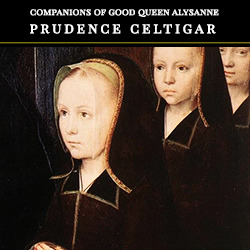






Companions and Ladies-in-Waiting of Good Queen Alysanne
Rosamund Ball Three other girls of noble birth made up the remainder of the company, one each from the Vale, the Stormlands, and the Reach: Jennis of House Templeton, Coryanne of House Wylde, and Rosamund of House Ball.
Ella Broome With her came her younger sister, Ella of House Broome, a modest maid whose name had briefly been offered as a match for Jaehaerys.
Lucinda Broome Prentys Tully, Lord of Riverrun, was summoned to court to serve as master of laws; with him came his redoubtable wife, the Lady Lucinda, far famed for her piety.
Prudence Celtigar Lord Celtigar’s daughters, so recently scorned by the Hand as being chinless, breastless, and witless, were included as well.
Prunella Celtigar In 55 AC she took particular pride in betrothals she arranged for two of the Wise Women who had served in her household since Dragonstone ... whilst Lady Prunella Celtigar was joined in marriage to Uther Peake, Lord of Starpike, Lord of Dunstonbury, and Lord of Whitegrove.
Jonquil Darke The slender mystery knight known only as the Serpent in Scarlet also had a great following; when finally defeated and unmasked, “he” proved to be a woman, Jonquil Darke, a bastard daughter of the Lord of Duskendale.
Mara Manderly ...and even a woman of the North, Mara Manderly, daughter to Lord Theomore of White Harbor.
Alarra Stark The women of Winterfell were taken by the queen’s charms as well, once they grew to know her; Her Grace became particularly close with Lord Alaric’s daughter, Alarra.
Jennis Templeton In 55 AC she took particular pride in betrothals she arranged for two of the Wise Women who had served in her household since Dragonstone: Lady Jennis Templeton would wed Lord Mullendore of Uplands...
Coryanne Wylde The lascivious details of the author’s erotic adventures need not concern us here. Our only interest is in the early part of her sordid tale, the story of her youth…for the alleged author of A Caution for Young Girls is none other than Coryanne Wylde, one of the girls sent to Dragonstone as a companion to the little queen.
#alysanne targaryen#house targaryen#house stark#asoiafedit#a song of ice and fire#artasoiaf series#nanshe's graphics
166 notes
·
View notes
Text
On this day in Wikipedia: Sunday, 31st March
Welcome, tervetuloa, ողջու՜յն (voġčuyn), добредојде (dobredojde) 🤗 What does @Wikipedia say about 31st March through the years 🏛️📜🗓️?

31st March 2023 🗓️ : Event - Tornado outbreak of March 31 – April 1, 2023 A historic tornado outbreak occurs in the Midwest and the northern South "A widespread, deadly, and historic tornado outbreak affected large portions of the Midwestern, Southern and Eastern United States on the last day of March and the first of April, the result of an extratropical cyclone that also produced blizzard conditions in the Upper Midwest. The Storm Prediction..."

Image licensed under CC BY-SA 4.0? by Wxtrackercody
31st March 2019 🗓️ : Death - Nipsey Hussle Nipsey Hussle, American rapper (b. 1985) "Ermias Joseph Asghedom (August 15, 1985 – March 31, 2019; born Airmiess Joseph Asghedom), known professionally as Nipsey Hussle (often stylized as Nipsey Hu$le), was an American rapper, entrepreneur, and activist. Emerging from the West Coast hip hop scene in the mid-2000s, Hussle independently..."

Image licensed under CC BY 2.5? by Soundtrack Beat Battle
31st March 2014 🗓️ : Death - Gonzalo Anes Gonzalo Anes, Spanish economist, historian, and academic (b. 1931) "Gonzalo Anes Álvarez de Castrillón (10 December 1931 – 31 March 2014) was a Spanish economist, professor and historian. He was director of the Royal Academy of History. He was born in Trelles, Coaña, Asturias, and died on 31 March 2014 in Madrid...."

Image licensed under CC BY-SA 3.0? by FDV
31st March 1974 🗓️ : Birth - Benjamin Eicher Benjamin Eicher, German director, producer, and screenwriter "Benjamin Eicher (born 31 March 1974 in Tübingen, Germany) is a film director famous for his cult film sequel Dei Mudder Sei Gesicht II and further feature-length gangster comedies. His company Los Banditos Films, founded in 2000 together with Timo Joh. Mayer, produces controversial movies with..."

Image licensed under CC BY-SA 3.0 de? by Shirley Karnowski
31st March 1924 🗓️ : Birth - Leo Buscaglia Leo Buscaglia, American author and academic (d. 1998) "Felice Leonardo Buscaglia (March 31, 1924 – June 12, 1998), also known as "Dr. Love", was an American author, motivational speaker, and a professor in the Department of Special Education at the University of Southern California...."

Image licensed under CC BY 2.0? by Alan Light
31st March 1823 🗓️ : Birth - Mary Boykin Chesnut Mary Boykin Chesnut, American author (d. 1886) "Mary Boykin Chesnut (née Miller; March 31, 1823 – November 22, 1886) was an American writer noted for a book published as her Civil War diary, a "vivid picture of a society in the throes of its life-and-death struggle." She described the war from within her upper-class circles of Southern slaveowner..."

Image by unknown/uncredited
31st March 🗓️ : Holiday - Freedom Day (Malta) "Freedom Day (Maltese: Jum il-Ħelsien) is a Maltese national holiday celebrated annually on 31 March. This is the anniversary of the withdrawal of British troops and the Royal Navy from Malta in 1979. On taking power in 1971, the Labour Government indicated it wanted to re-negotiate the lease..."

Image by Picman
0 notes